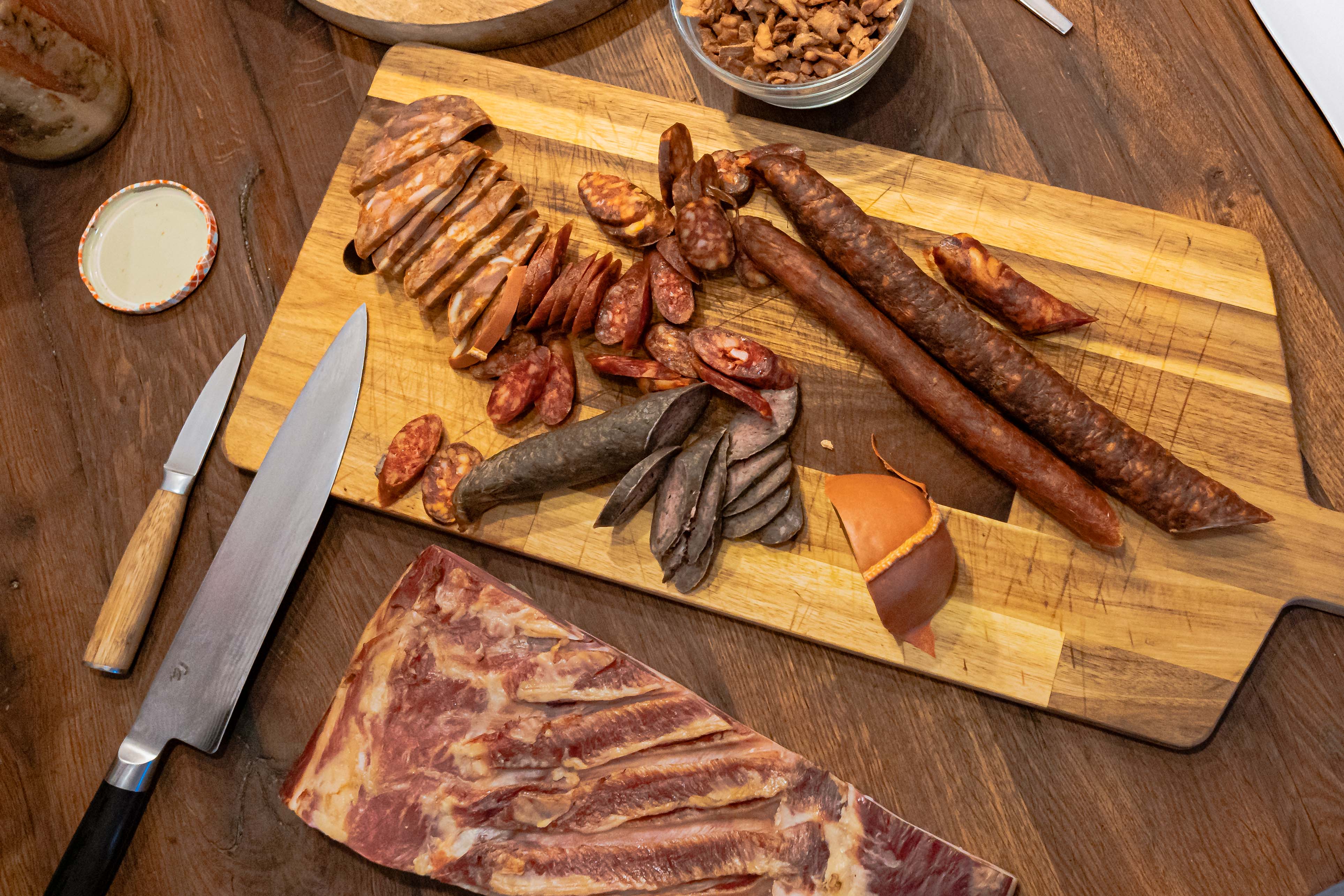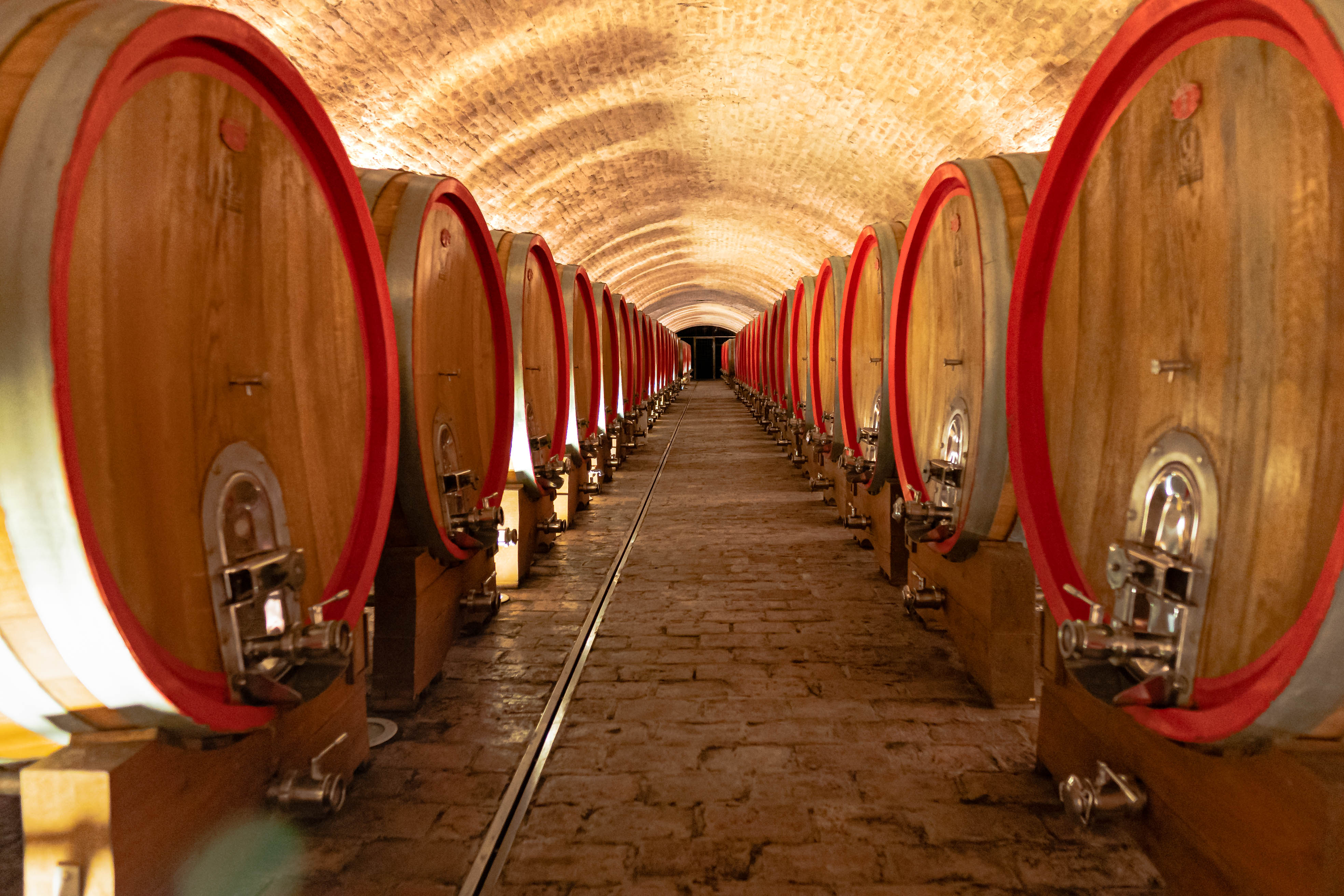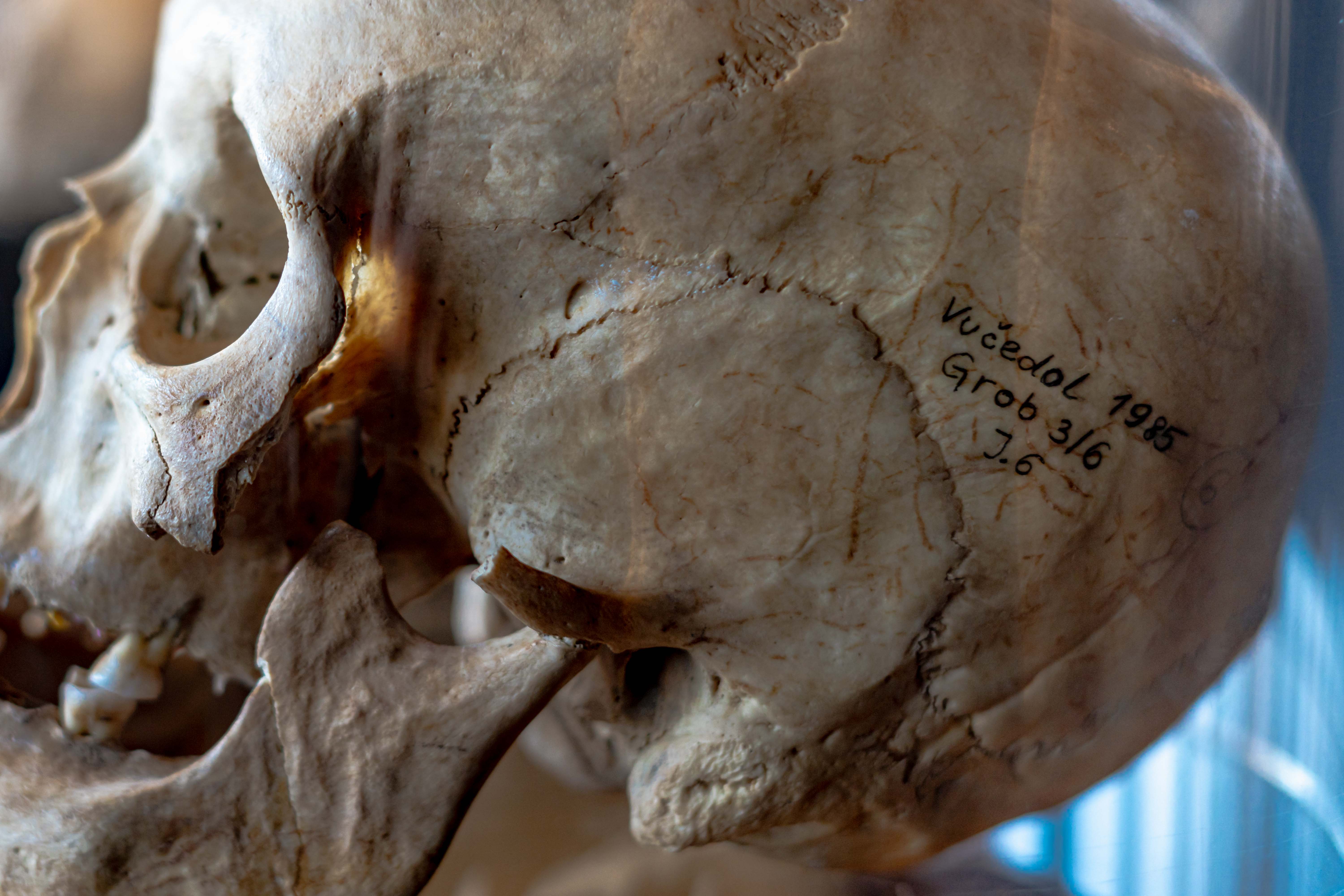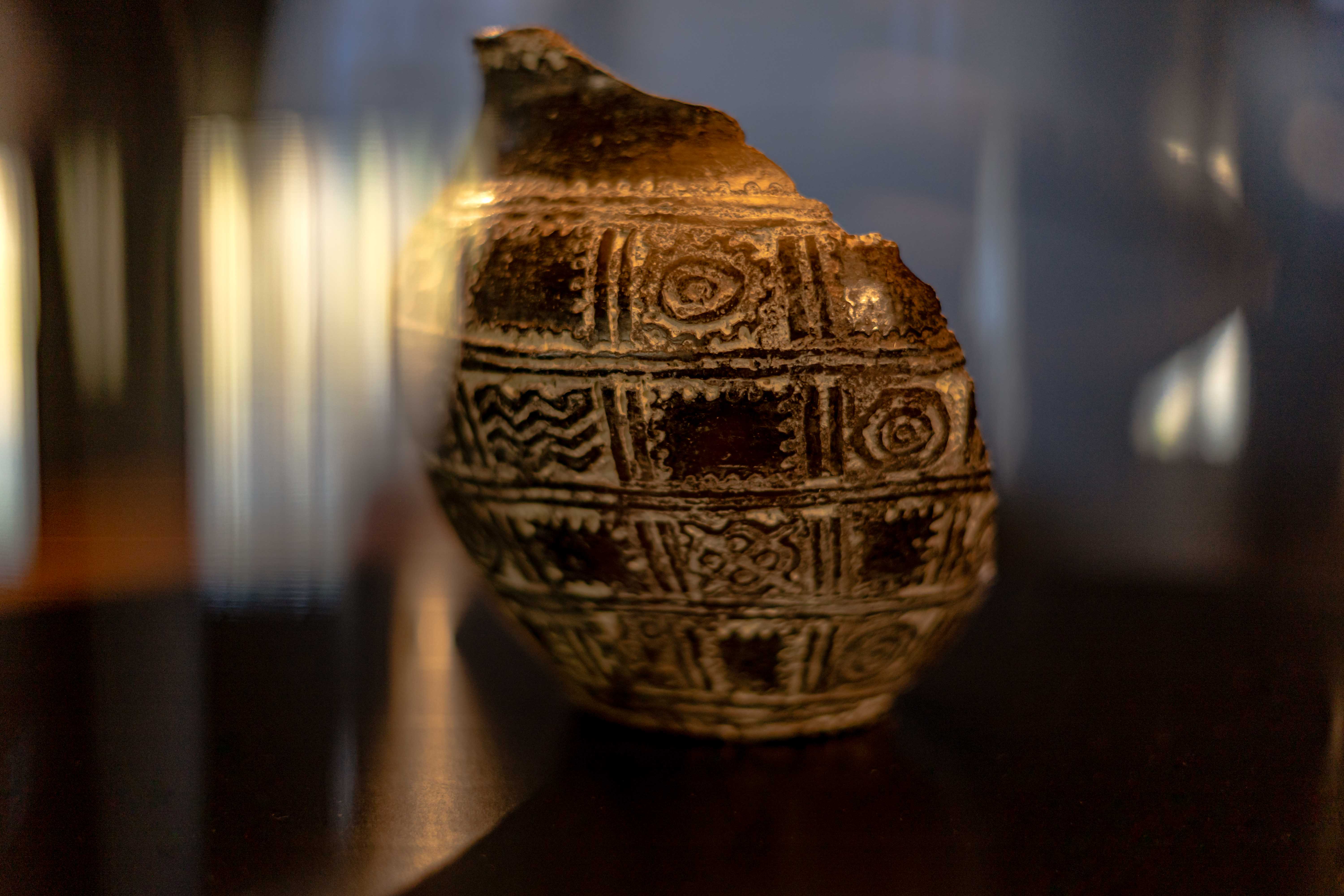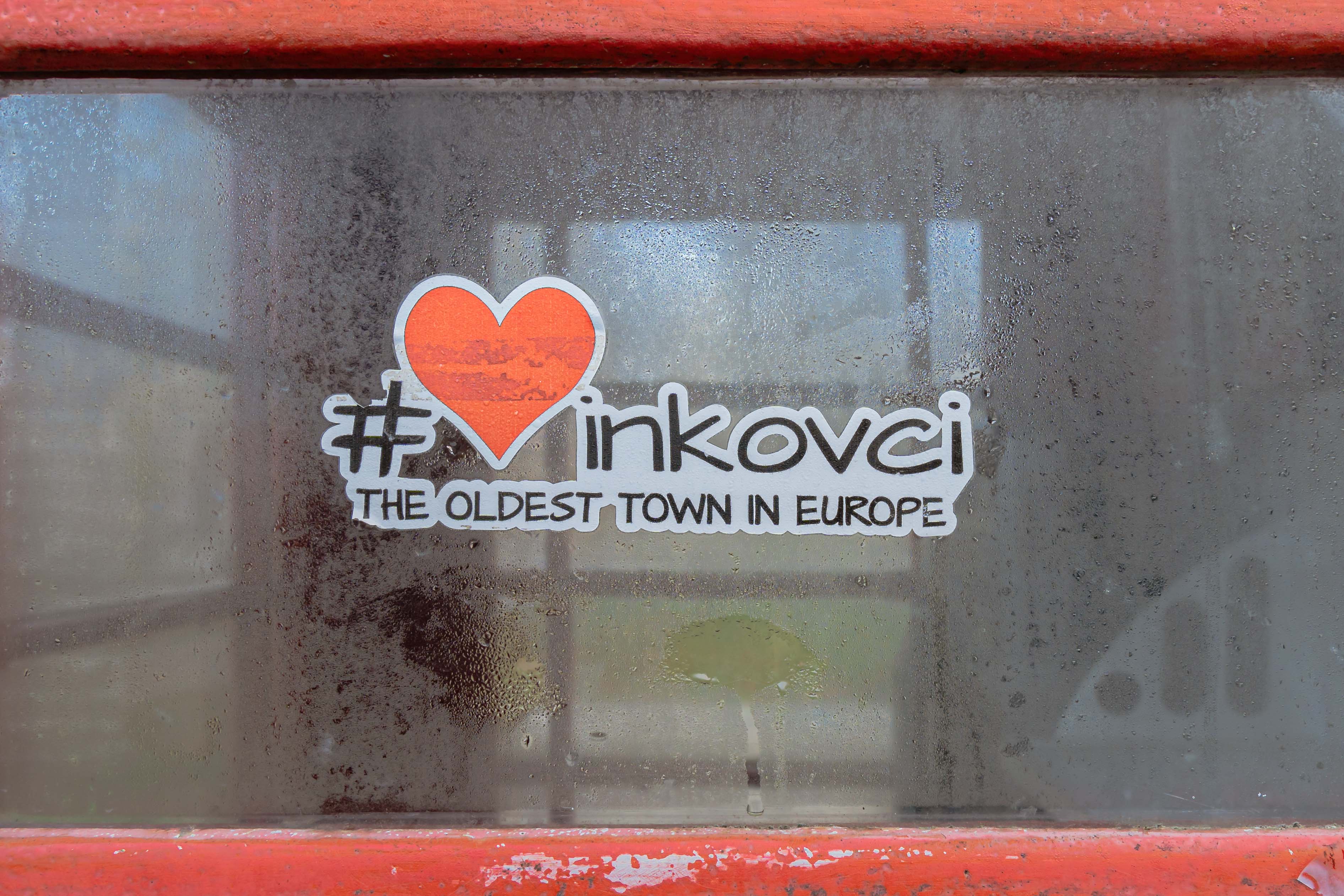Meet Vukovar 365, Full of Life - Valentina Šimak's Holiday Home
November 3, 2022 – November is always a difficult month in Vukovar. The feelings are a mix of pride and gratitude, sadness and hope. All further aggravated by the sudden interest in what goes on. And while the city often only gets one weekend of attention, people here live, work, and thrive every day. Just another example of that is a young lady called Valentina, who not only decided to take the plunge and start a business with her partner but was brave enough to do that in tourism. Yes, in Vukovar. In the beautiful area of Vučedol.
Could you tell us about yourself and your project?
I'm Valentina, I'm 28 years old, and I grew up in Vukovar and lived here all my life. I studied public administration, and I graduated in 2020. I worked various jobs until I found one in the profession; now I work as a school secretary. I often go to holiday homes with my friends to take a break from work and the hustle and bustle of the city or to escape from everyday life. The cottage, located 3 kilometers from the town of Vukovar, in the forest of Vučedol, has become our oasis of peace and a corner where all worries disappear. I thought it would be good for other people who visit our city to have their own oasis of peace, so I decided to open a vacation house called "Vučedolska Golubica" (The Vučedol Dove). Just as the dove symbolises peace, our home also exudes peace due to its location in beautiful nature.
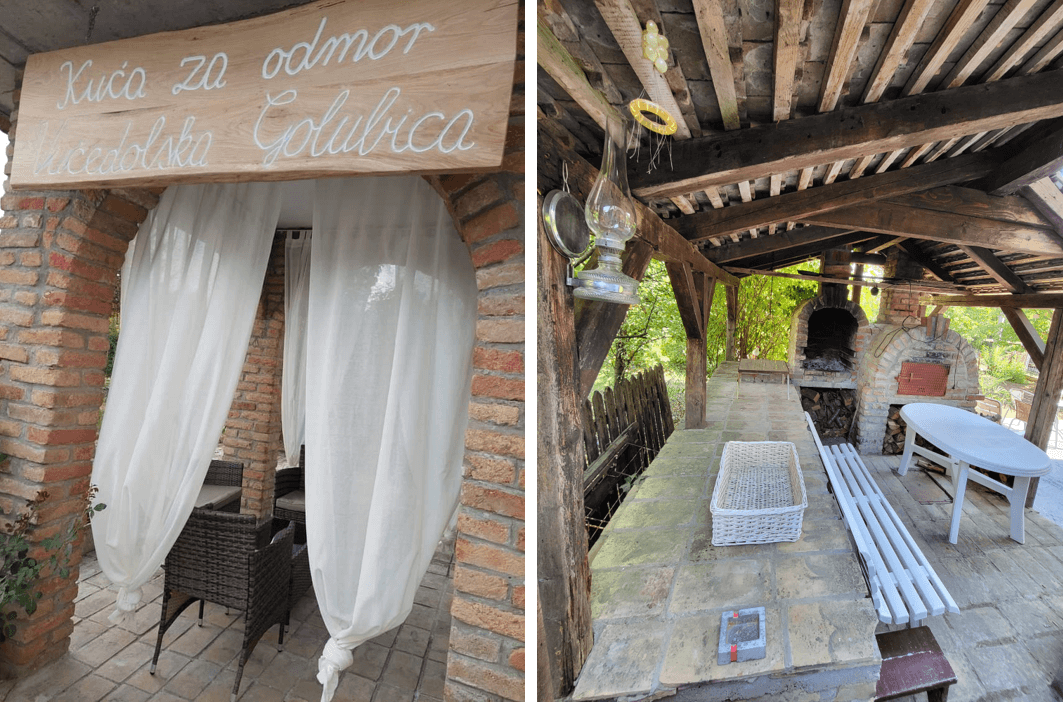
What inspired you to start something of your own?
Thinking about my hometown, my fellow citizens, visitors, and tourists who come from different parts of the world, I realised that our holiday home is all they need to spend quality time resting and relaxing. From there, they can take a short walk to the Vučedol Culture Museum, the beautiful Danube, and the island that can be seen from the shore, the wonderful wine road. People who enjoy walking and cycling will love the proximity and accessibility of all the sights and amenities.
What were the main challenges of starting such a business?
Every beginning is complex, and so was ours. I was always thinking about how to start a business, how to advertise, how to do marketing, and how to show people all the great things they could experience here... Really, there were a lot of challenges because I didn't know where to start. After we took the first step, though, all my worries disappeared. The visitors who came rated us very well and gave us the strength and motivation to be even better and more persistent in our goal. We strive to be better every day.
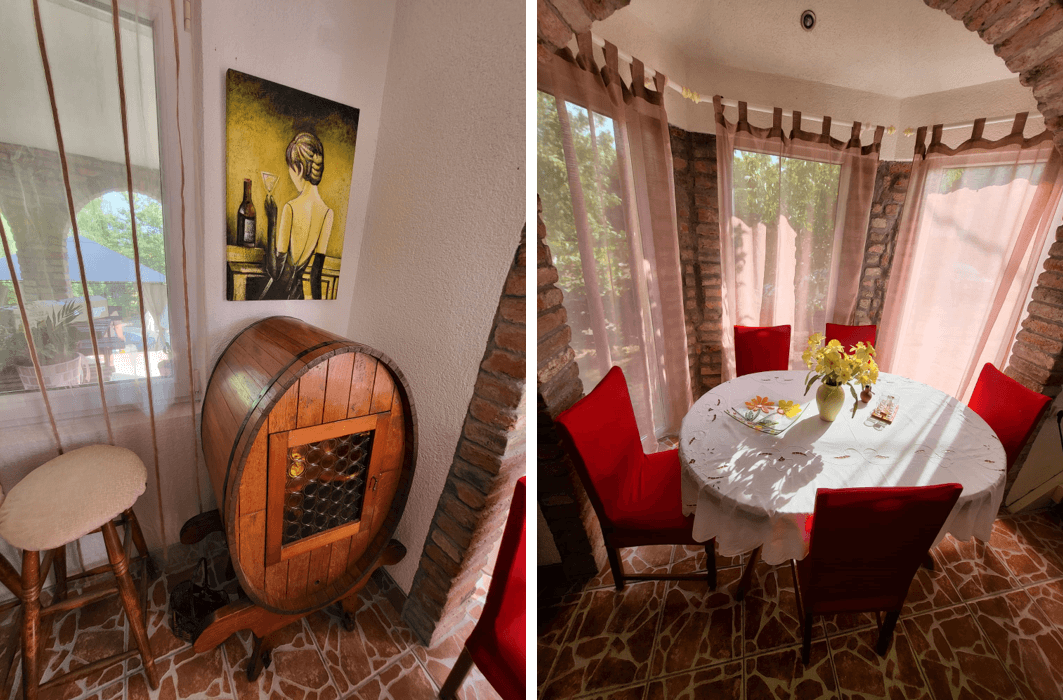
How does your location in the east of Croatia affect the development of your business?
Vukovar is located in the very east of the Republic of Croatia, in our beautiful Slavonia. Our city has a lot of historical stories and events that every individual should learn about to experience Vukovar as we, the people of Vukovar, share it. For us, the city of Vukovar, a hero city, is our strength.
Our location is challenging since we are not at the coast. Visitors do believe that it is much better to go to the sea, but I can convince them with photo evidence that we also have our sea, our beautiful Danube. In summer, free boat transportation to the island (Vukovar's Ada) is organised. And it boasts a diverse world of content for all ages and desires.
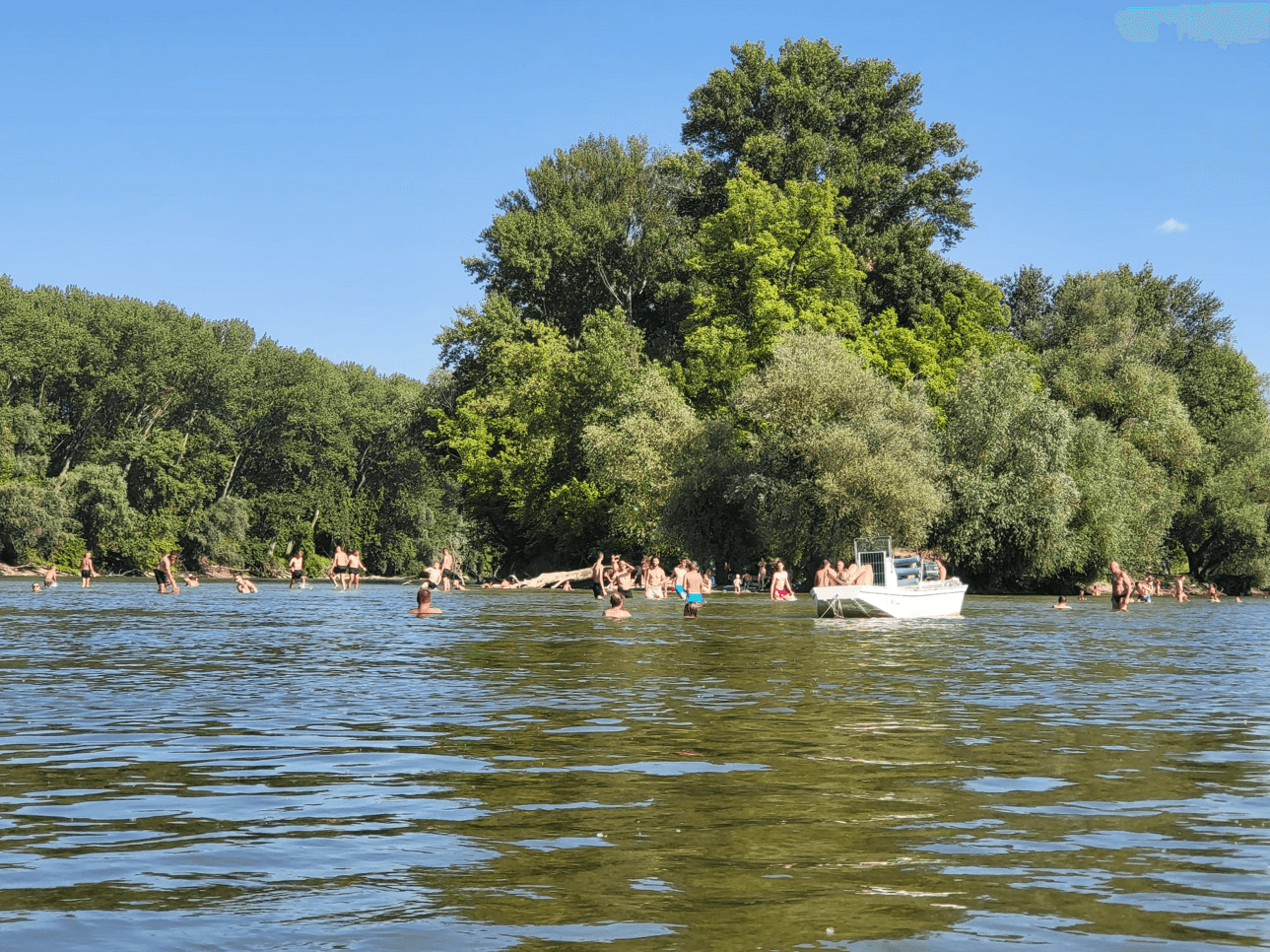
Are you happy with your progress so far?
I am satisfied with what we have done so far, even though we are at the very beginning. The house has two floors, a kitchen, two bathrooms, and a bedroom with panoramic windows upstairs, while downstairs, there is a large living room and dining room. We are planning to build a children's playground on the property, as well as a swimming pool. We currently have a jacuzzi, an area for barbecuing, and a fire pit for outdoor cooking.
What is the situation with this type of tourism in Vukovar?
Most of our visitors come to Vukovar from Croatia. The reason is that few foreigners know our city's history and what it has to offer. I recommend everyone who hasn't been to visit us and see all the cultural sights of our city and take a break from everyday life in beautiful nature. Indeed,we are surrounded by fantastic nature and have wonderful things to offer.
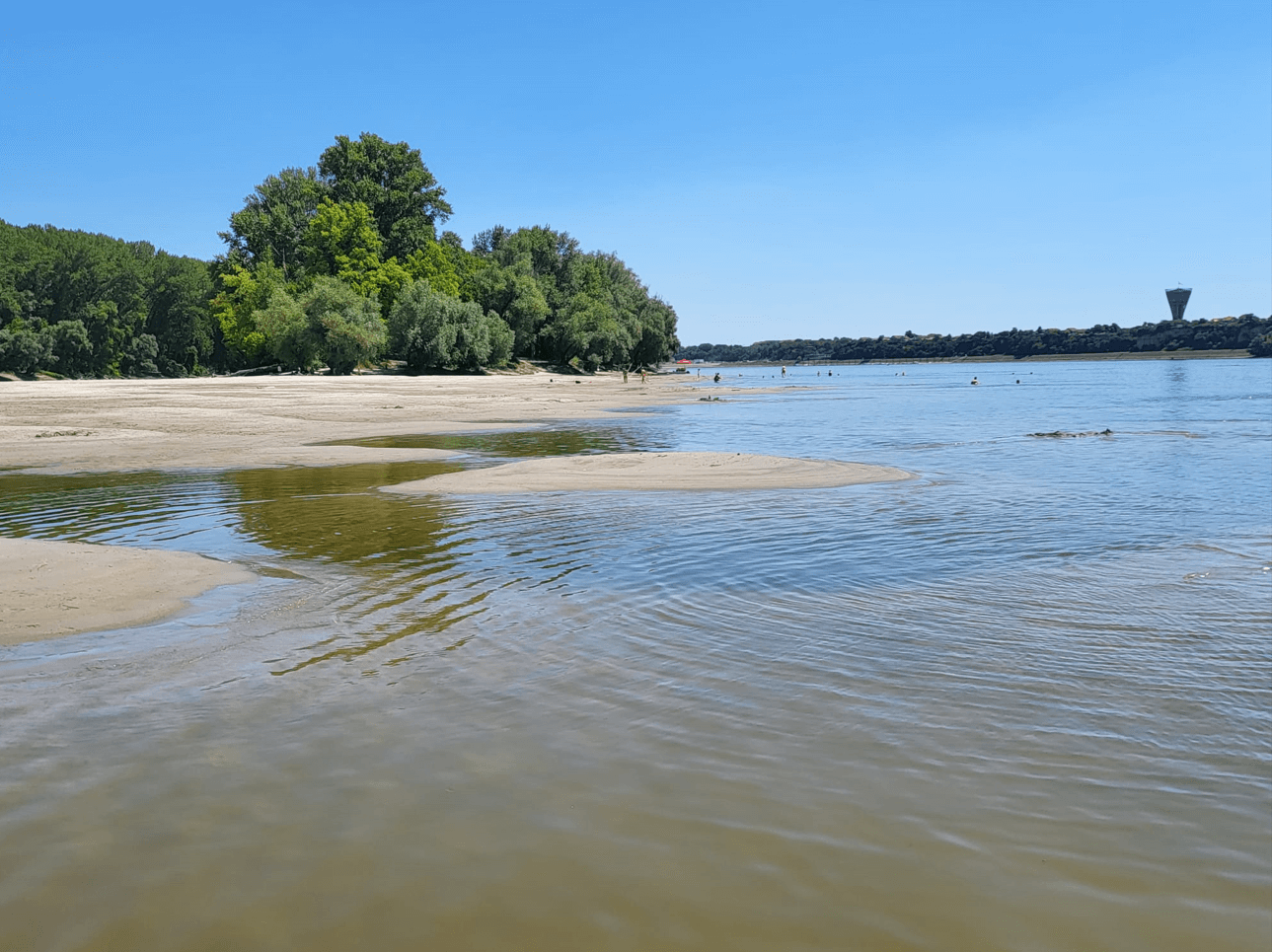
Are you connected with other similar businesses in Vukovar?
In the city, there are many renters, but we are unfortunately not connected. I want to connect with others to reach a place where everyone would present their suggestions and criticism so that together we can keep up with the times and take off into new business ventures.
What is it like to live in Vukovar, and what is unique about the area of Vučedol?
I would describe life in Vukovar as a priceless gift. Most of us from Vukovar know what the city experienced in its past and how it rose and became a wonderful, peaceful, small town over time. Next to Vukovar, which exudes uniqueness because of everything it has experienced, you can find Vučedol. This area is a peaceful natural oasis where our holiday home has found its place, adorned with untouched nature and the beautiful wild coast of the Danube, which is incredibly charming for fishermen. Of course, cyclists won't be disappointed either because a cycling route through Vučedol goes all the way to Ilok, following one of the most beautiful cycling routes in Europe.
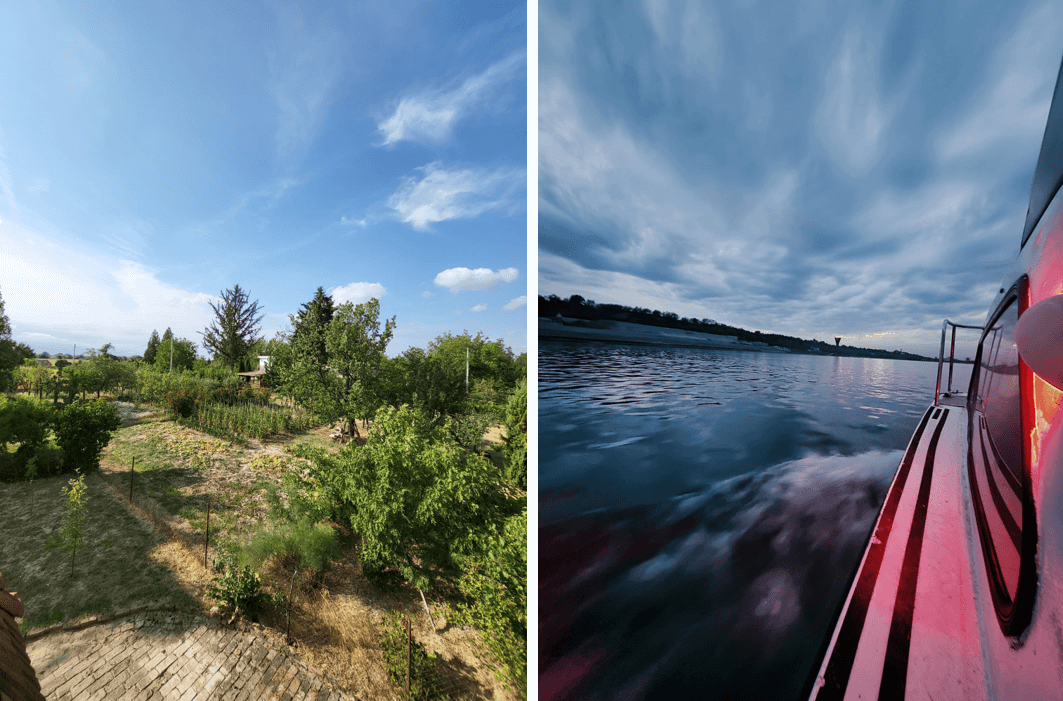
Why should people visit your holiday home?
After all, it can be concluded that our vacation home exudes uniqueness and peace, and gives you a touch of home. It's a place where you feel like it's your home. Why? Because it provides peace, security, and a sense of freedom. Visit us, come to us, and see how you can get immense quality, warmth, and acceptance for a small price. We will be at your disposal throughout your stay, ready for any questions and always helpful.
How can they reach you?
Book your stay on Whatsapp or Viber at +385989532320 and follow us on Facebook at Kuća za odmor Vučedolska golubica.
For more, make sure to check out our dedicated Lifestyle section.
Strong Tourist Season in Baranja, More in Store for the Winter
November 2, 2022 - As early as in mid-September, the number of overnight stays in Baranja was equal to the total number of overnight stays achieved in 2019, which means that the record has already been exceeded.
Glas Slavonije reported on the positive trend which this eastern Croatian region has been enjoying. "Judging by the inquiries and planned events, we are expecting a great tourist year", said Matej Perkušić, director of the Baranja Tourist Board, stressing that it is obvious that, above all, domestic guests have acquired a new habit, "to travel and spend nights within Croatia, including Baranja."
He reminds that there is no season or postseason on the "continent", which is confirmed by the numerous visitors to several events in Slavonia-Baranja during the past months. Željka Bagarić-Dumančić from the Baranja Tourist Board claims that guests will have a reason to come to Baranja (but also a bit more).
"Let's start with the events included in the celebration of the Day of Beli Manastir, Martinje. Among the whole series of different and interesting month-long events organised by the City, Beli Manastir associations and institutions, I single out the preparation of traditional Baranja fish dishes, which will be held on November 5 in the Hungarian House of MKU Pelmonostor. On the very Day of Beli Manastir, a concert by the tambura group Fijaker is planned, and the day after a fair of local products with a rich gastronomic offer", said Bagarić-Dumančić.
Steve Tsentserensky
Many guests will also be attracted by the traditional Karanac Winter Fair and Čvarak Fest on November 26 at the Karanac Field, organised by the Association of Keepers of Old Crafts (Udruga čuvara starih zanata), with the help of Baranjska Kuća and Baranja Tourist Board. This year too, visitors will be welcomed by numerous stands, a rich gastronomic offer and interesting content. This year's novelty is the winter Wine & Walk. So far, only the summer one has been held, and due to numerous inquiries from the participants, the local tourist board, in cooperation with the Baranja Winegrowers Association, decided to organise one during the colder part of the year as well. It will be held on December 10.
Steve Tsentserensky
"We expect between 200 and 300 participants. On the nine-kilometer-long trail through Suza and Zmajevac, the famous wine meccas of Baranja, participants will be welcomed at numerous locations by Baranja winemakers and restaurants with top-quality wines and snacks. We will provide the walkers with a map, a wine glass and a winter hat, and the participants will need to make sure they wear comfortable clothes and shoes and a good mood", explains Bagarić-Dumančić, adding that the wineries Pinkert, Kovač, Kolar, Horvat, Gerštmajer, Svijetli dvori, Zlatno brdo, Kalazić, Josić, Szabo and Kusić will be waiting for the walkers. The energy will be taken care of (also) by the Kovač Čarda restaurant, the Oaza Mira vacation house, the "Tako je to nekad bilo" (As It Once Was) association, the Borarium Vinarium, and the Kusić cellars. The registration fee is HRK 300. The afterparty is in Katolički Surduk. Finally, let us not forget the Baranja Advent (Christmas markets) in Kneževi Vinogradi and Beli Manastir.
For more, make sure to check out our dedicated Travel section.
Osijek Centre for Missing and Exploited Children Receives Prestigious International Award
October 21, 2022 - The Osijek Centre for Missing and Exploited Children is the winner of the prestigious international award of the "Care About the Children" Foundation of Queen Silvia of Sweden. It thus became the first organisation from Croatia to receive this award, the Centre reported.
As Index writes, and as announced by the Osijek Centre, among more than 130 nominated organisations in Europe that deal with the protection of children from abuse and exploitation, the Expert Court of the Foundation has chosen ten to award the prestigious award to associations whose protection of children's rights is imperative.
The Queen Silvia Foundation in Sweden "Care About the Children" aims to meet the most basic needs of children, based on the UN Convention on the Rights of the Child.
The Osijek Centre points out that the award was presented on October 18, on the European Anti-Trafficking Day, at the Swedish Royal Palace, to prominent organisations for the fight against child trafficking and sexual abuse of children via the Internet.
The award was received from Queen Silvia by the head of the Osijek Centre for Missing and Exploited Children, Tomislav Ramljak, who commended the fact that such a highly positioned institution recognised the work of the Osijek institution, and the award of 10,000 euros, he added, will be an additional incentive for further investments in preventive programs.
Ramljak pointed out that educational institutions, the police, specialised associations, companies, and state bodies must work together to make the Internet a safer place.
"We must do everything in our power so that children feel safe to report any form of violence on the Internet if they experience it. This requires the joint work of the entire society," said Ramljak.
The Osijek Centre for Missing and Exploited Children reminds us that their long-term work resulted in the launch of the National Centre for a Safer Internet and the telephone number 116 000 - the international hotline for missing children in the Republic of Croatia.
Lectures in schools, education for experts, campaigns to raise awareness, and numerous preventive activities are recognised as of great value in the fight to protect children from abuse and exploitation on the Internet; the Osijek Centre points out.
For more, make sure to check out our dedicated Lifestyle section.
Meet the Croatian Indiana Jones - Prof. Dr. Sc. Aleksandar Durman
October 20, 2022 – So there are places in Croatia where people have continuously lived for 8000 years. And there was a civilisation on the bank of the Danube 5000 years ago that knew the stars, seasons, and how much a standard door frame would measure today. Oh, and they drank beer. The fact that we know that and so much more we owe Professor Aleksandar Durman, the living legend of Croatian archaeology. We had the honour to meet the man himself and sit down with him for an hour of conversation, which included practical demonstrations of why the moon wasn’t a practical tool for the Vučedol people, a few trips down memory lane, and a discussion on the future of tourism in the Croatian east.
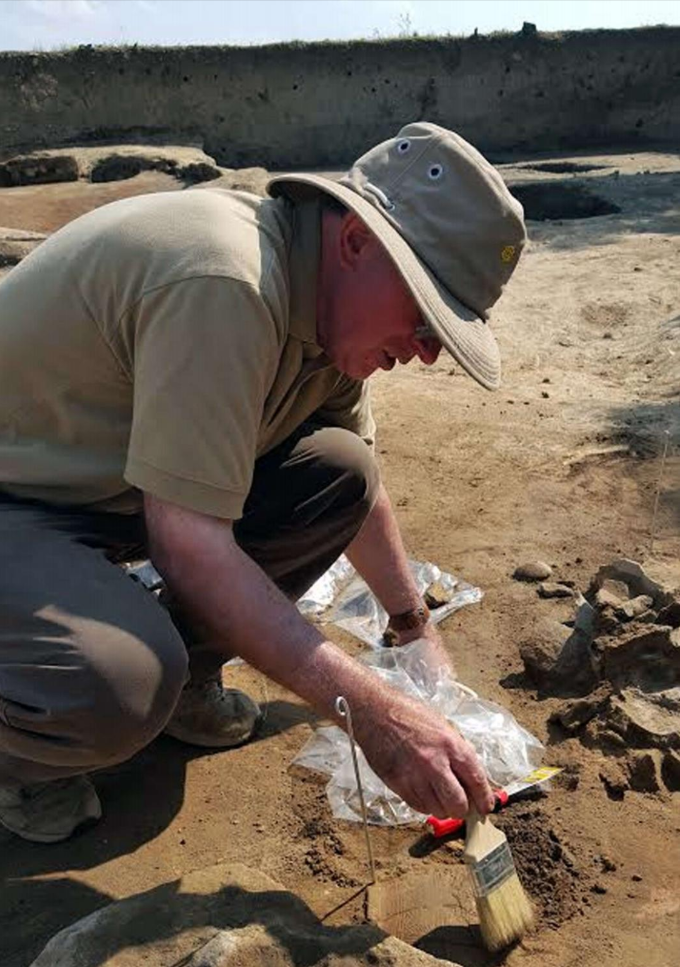
The man in action, Vučedol Culture Museum
Let us properly introduce the lively professor. He was born in 1949 in Zagreb, where he lived a happy childhood and studied archaeology and history. Asked about his interest in these areas, professor Durman says that archaeology came as a sort of plan B after he realised that he wasn’t that interested in physics which he initially planned to study. Archaeology seemed exciting and interesting, he adds, but since job prospects were scarce in the field, he decided to study history along with it. During his studies, though, he ensured that he was employed in archaeology and never looked back. When he was a student in the seventies, almost all the research was concentrated on the Croatian coast and the remnants of the Roman era that kept popping up there. Fair enough, he comments, but there was and is much more to discover in other parts of Croatia, primarily the east.
Steve Tsentserensky
And he went on to do just that. In his consolidated CV, there is a page just about his research projects in Vukovar and Vinkovci, where he started working in 1977 and kept coming back until his recent retirement. He received multiple awards for his contribution, including the Vinkovci Gold Plaque (2011), the Lifetime Achievement Award of the Croatian Archaeological Society (2013), and the title of an Honorary Citizen of Vukovar (2020).
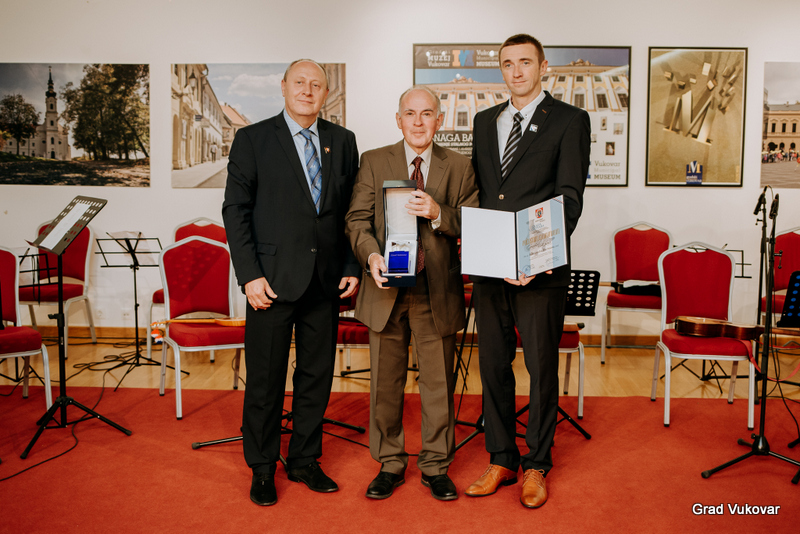
City of Vukovar
If you've heard anything about the Vučedol culture and the museum, it was probably about the famous bird. This ceramic dish was discovered there in 1938 and became a symbol of Vučedol and Vukovar. We mean, of course, the Vučedol dove that was later reclassified as the Vučedol partridge. Professor Durman changed its “name,” providing an excellent explanation. Without revealing it, we’ll say that it has to do with social hierarchy, the nature of the job, and what partridges do when they sense danger. You can see the original in The Archaeological Museum in Zagreb, but the Vučedol museum in Vukovar will provide all the context and insight to help you understand why an ancient civilisation, the contemporaries of Egypt and Mesopotamia decided to settle just there. At the risk of repeating ourselves, if you head east, make sure to visit this stunning location.
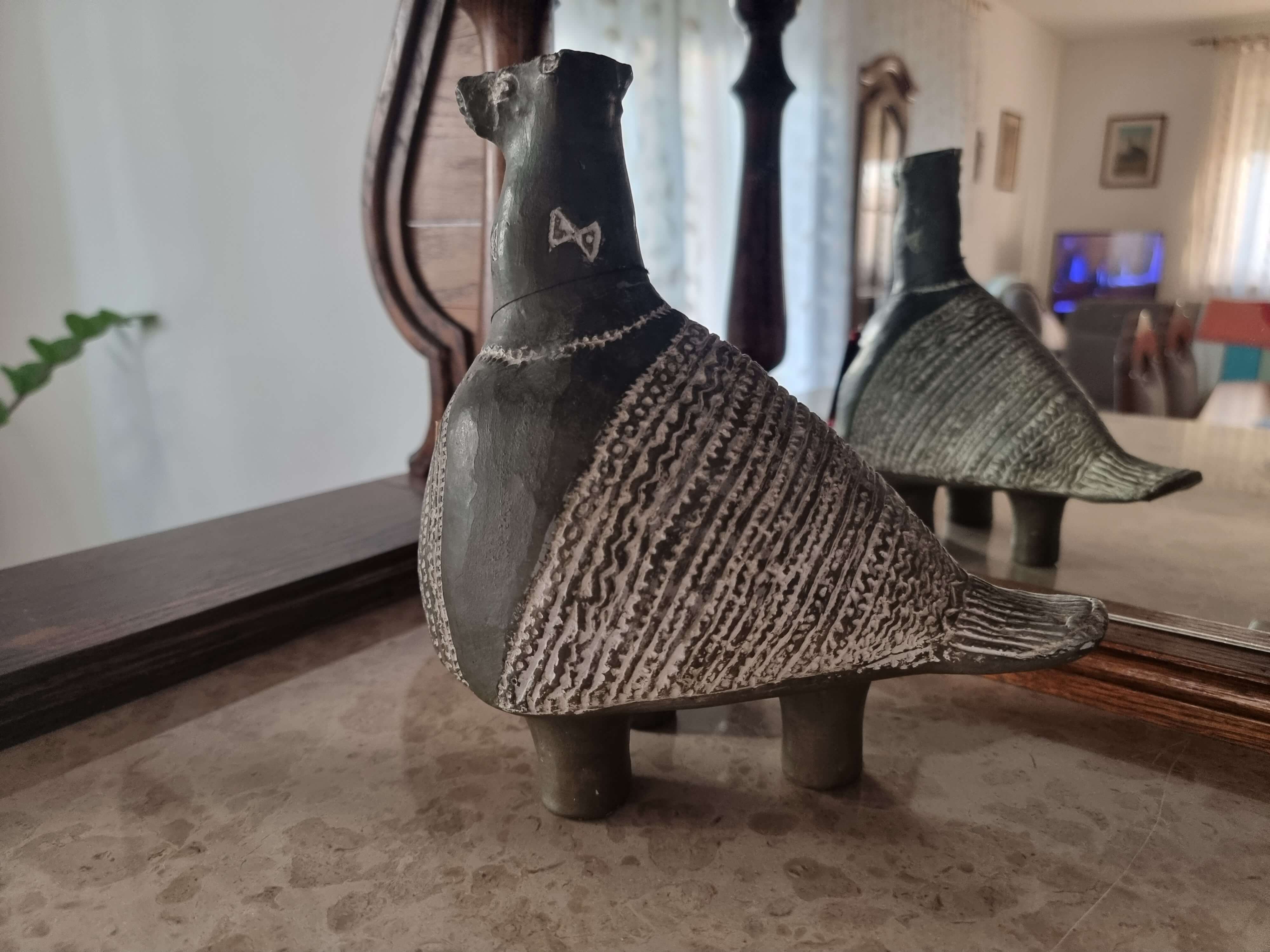
Back to our main character. An article about the professor wouldn't be complete unless we mentioned, possibly, his most significant discovery. That would be the Orion calendar which he discovered on the 21st of March in 1978. Fate, he says, having found it on the first day of spring. The little ceramic dish in question, according to professor Durman's interpretation, is one of the most significant witnesses of just how advanced the Vučedol civilisation was. The carved pattern on the dish apparently represents the night sky, with the four horizontal fields most likely dividing it into the four seasons.
The Orion calendar, Steve Tsentserensky
The incrustations inside the fields represent the constellations visible in the area in 2600 BC. The most important one, you might have guessed, was the Orion. It was the dominant winter constellation, and it was reliable – when the three stars of Orion's belt would fall below the horizon, the Vučedol people knew spring was there. And since they largely relied on their crops for sustenance, the first day of spring also signified the start of a new year and new life. The stars played a significant role in the daily lives of the Vučedolians as well as their spirituality. The Orion dish was found in a locality near Vinkovci and has become the symbol of that city.
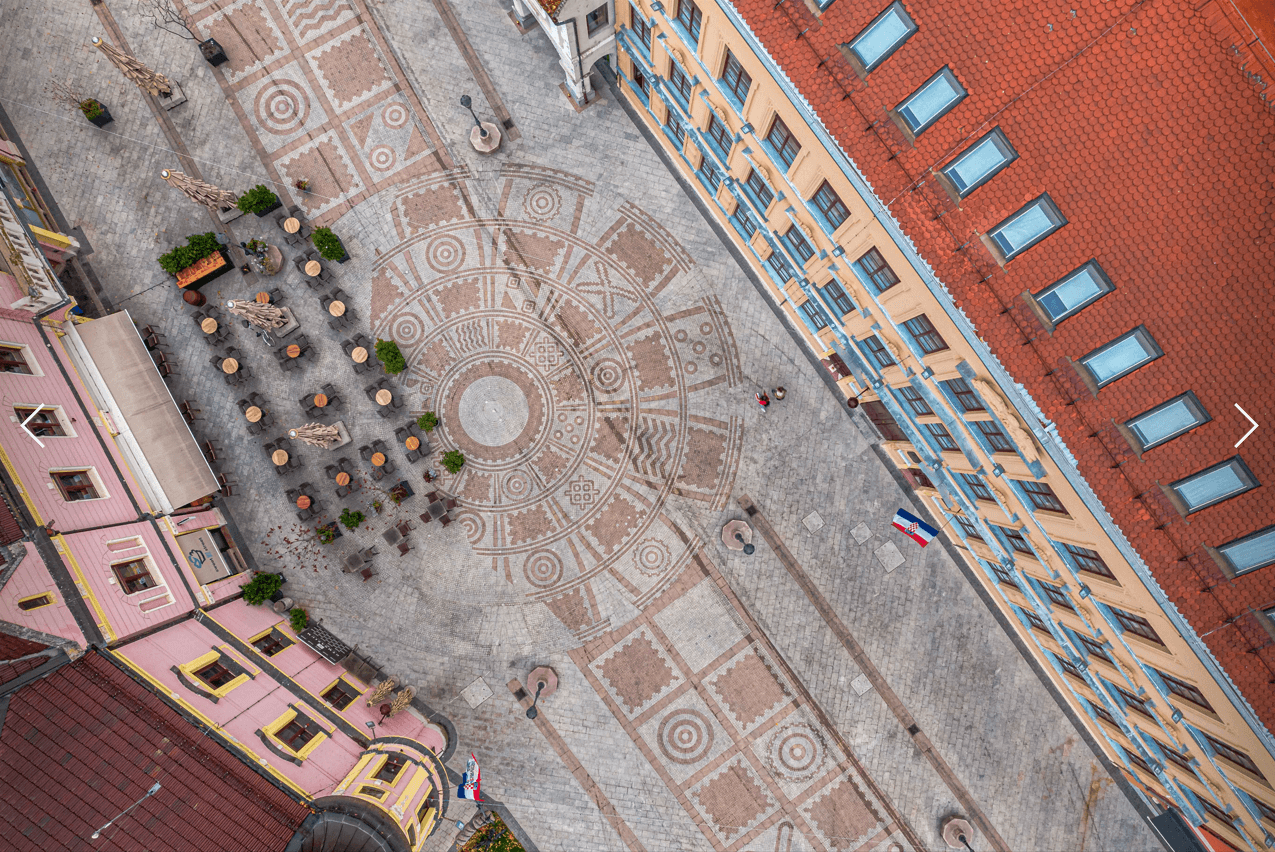
Orion calendar mozaic in Vinkovci city centre, Steve Tsentserensky
Speaking of, it is Vinkovci that takes another special place in our article and the books of Croatian archaeological research. You might have heard something about it being the oldest city in Europe, but that, we dare say, is an understatement. Professor Durman found evidence supporting the thesis that the area of Vinkovci has continuously been inhabited for over 8000 years. Fun fact, not one but two Roman emperors were born in Vinkovci – Valentinian and Valens, whose name is now synonymous with some excellent craft beer.
Steve Tsentserensky
To put all of this in context, let us quote the professor himself when asked how we should present his findings and demonstrate the importance of these areas to both those who live here and those who visit. “The Vučedol culture was the highest level of Indo-Europeans at the very beginning. They had a calendar; they knew metallurgy, and even the measurements for door frames that we still use today came from there. They had a pictorial writing system before the hieroglyphics. Just consider that all we know about Greek mythology had its roots in the Vučedol culture”. Now tell us that is not fascinating.
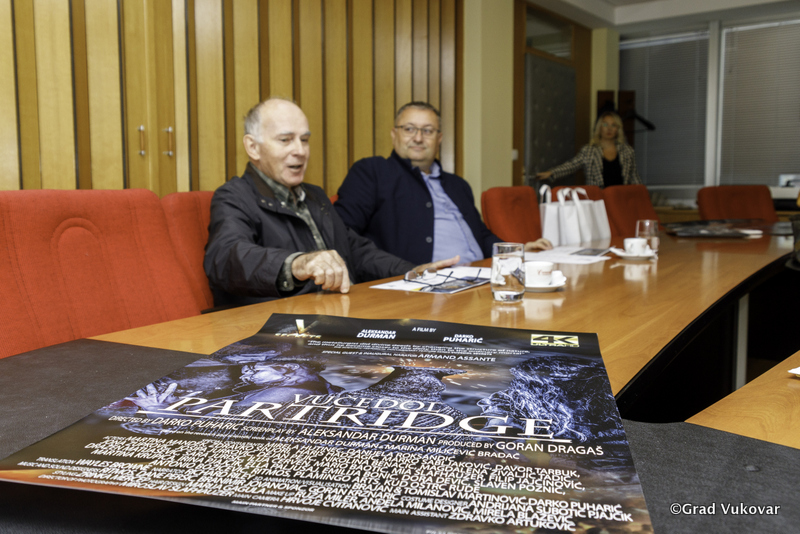
City of Vukovar
Finally, let us thank professor Durman for a unique, educational evening and his contribution to archaeology in Croatia, but especially in the east of the country. He has worked tirelessly to find, study and explain so much of what we know about the area today, and he has also travelled the world promoting it and emphasizing its importance. Among other things, he was a screenwriter for the Vučedol Secrets film, with its third part coming out soon. Naturally, we also asked him about the future of tourism in Slavonia, and we were happy to hear that he shared our view – the area is still a hidden gem, but its time will come. Archaeology and archaeological tourism will play a key role.
For more, make sure to check out our dedicated Lifestyle section.
Events to Check Out if You're Spending the Weekend in Eastern Croatia
October 11, 2022 - Has autumn convinced you to visit the east of Croatia? Not that we blame you if you've decided to spend these warm days on the coast. If you are among the ones who have decided to witness the colours, sights and smells of autumn in the eastern parts of Croatia, though, you might be looking for something to do other than let the beauty of the area make you fall head over heels for it. We're bringing an overview of events for a fun, joyful, maybe educational weekend in eastern Croatia.
Friday, October 14, Slavonski Brod: BrodTech Cafe
If you find yourself in or near Slavonski Brod, the Association of ICT businesses of the city, Connect-IT is organising the first edition of BrodTech Cafe, an evening gathering with topics about technology, marketing and entrepreneurship on Friday, October 14 starting at 7 pm. Their guest will be Marijan Palić, author of the hit book Atomic Marketing, which was the best-selling marketing book in Croatia in 2019. Marijan is a top expert in digital marketing and head of marketing at Notch Agency (ex Agency04). Marijan will present the best examples from practice in marketing, sports marketing, SEO and will be happy to open a discussion on those topics. All you need is some good will, and the entrance is free. The first lecture is organised through the Marketing Lab project in cooperation with the Connect IT Association. Find the event here.
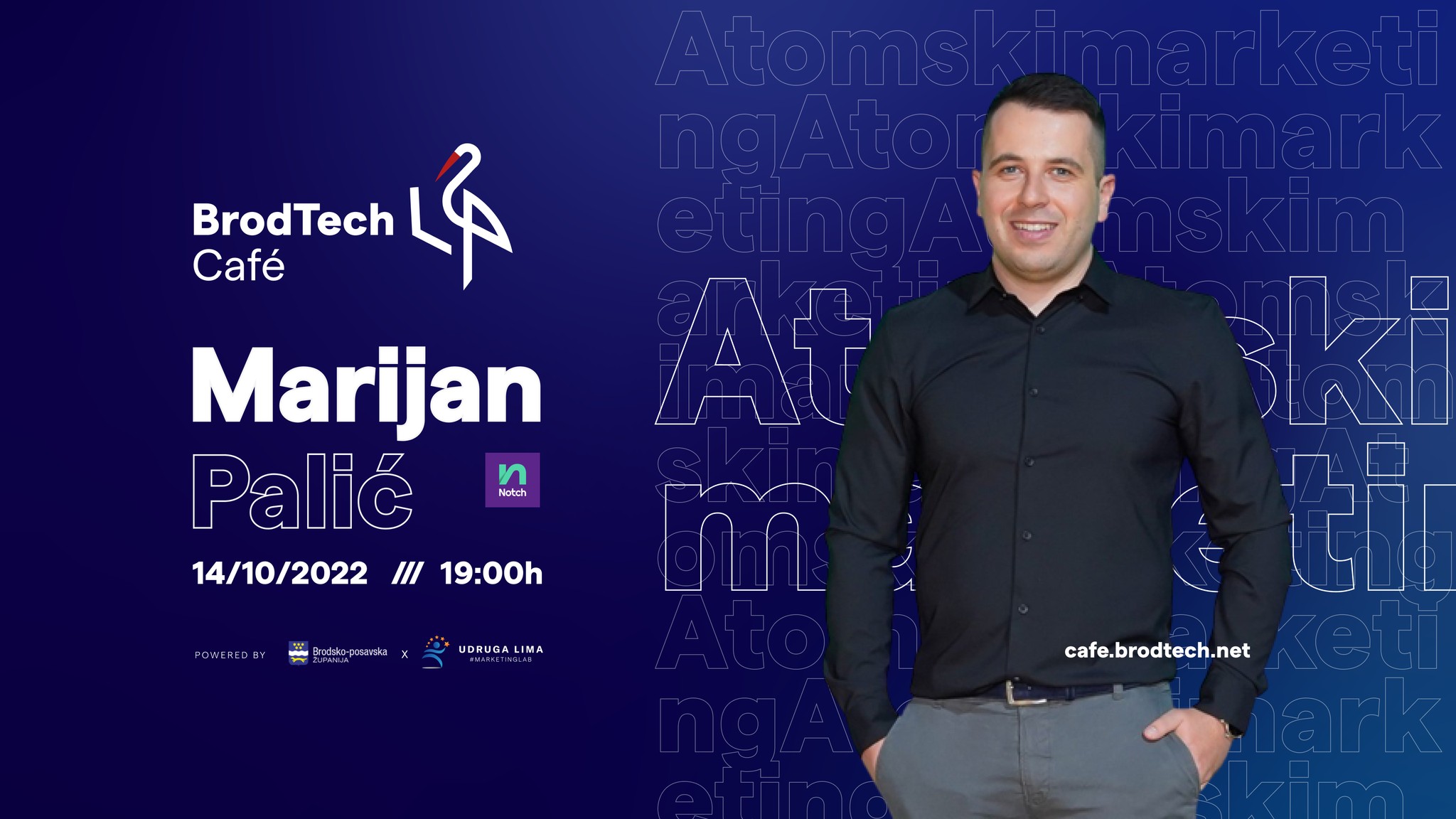
Brod-Posavina County and Udruga Lima
Friday, October 14, Vukovar: Goran Vinčić "Dežurni Krivac"
If you're looking for a chill evening and some laughs in Vukovar, try stand up comedy in Hrvatski Dom. Starting at 8 pm, Goran Vinčić is bringing his "Dežurni Krivac" (Culprit on Duty) show. As stated in the event, Goran Vinčić Vinča is practical proof that it is not wise to connect the Tasmanian Devil to three-phase electricity. The most energetic comedian of the Balkan stand-up scene, a master of crowdwork and improvisation, a massive Slavonian who sings, acts, talks, recites, animates... above all, he is the culprit of laughter! In his play "Dežurni Krivac" he will talk about everything - love, marriage, grandmothers, Slavonians, sex, narodnjaci and Eros Ramazzotti.
Entry: HRK 50
? Tickets can be purchased at the box office of Hrvatski Dom Vukovar - weekdays from 10 a.m. to 1 p.m. and 2 hours before the start of the show.
INFO and RESERVATIONS:
☎️ 032/450-679
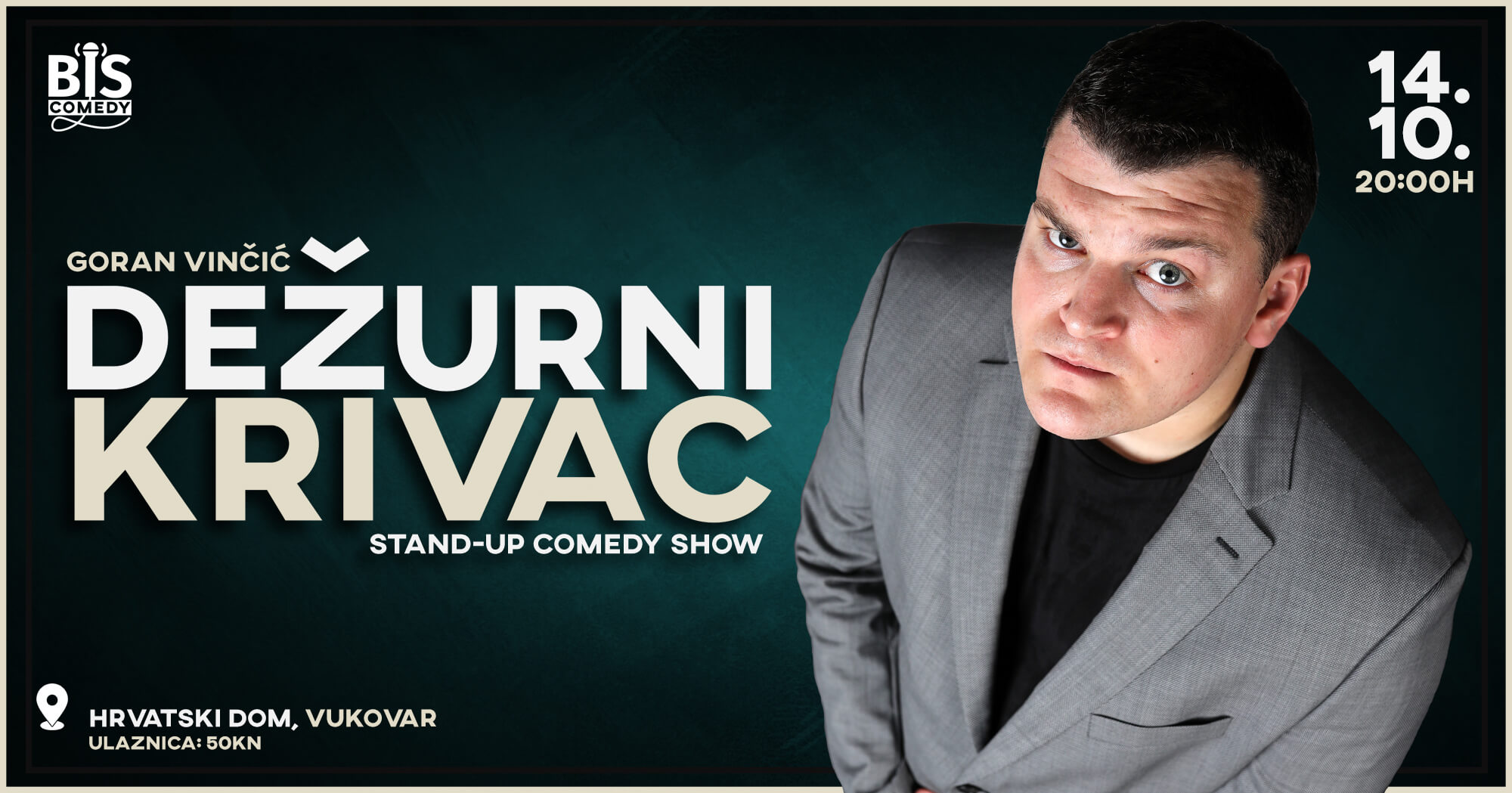
Hrvatski Dom Vukovar
Friday, October 14 - Saturday, October 15, Vukovar: Days of Astronomy
The Astronomy Association Vukovar has partnered up with the City, as well as the Night Sky School of Astronomy, to organise a weekend of learning and fun for all ages. On both days, mornings and early afternoons are reserved for lectures and workshops on how to observe the sky and observing the sun with a telescope, while the afternoon and evening lecutures and workshops will focus on what is currently going on in space, the importance of astronomy for the Vučedol culture, and the visitors will get a chance to observe the planets Jupiter and Saturn on both evenings. The special guests include the astronomer Ante Radonić and the archaeologist professor Aleksandar Durman. The lectures and workshops will take place at the Vukovar Municipal Museum.
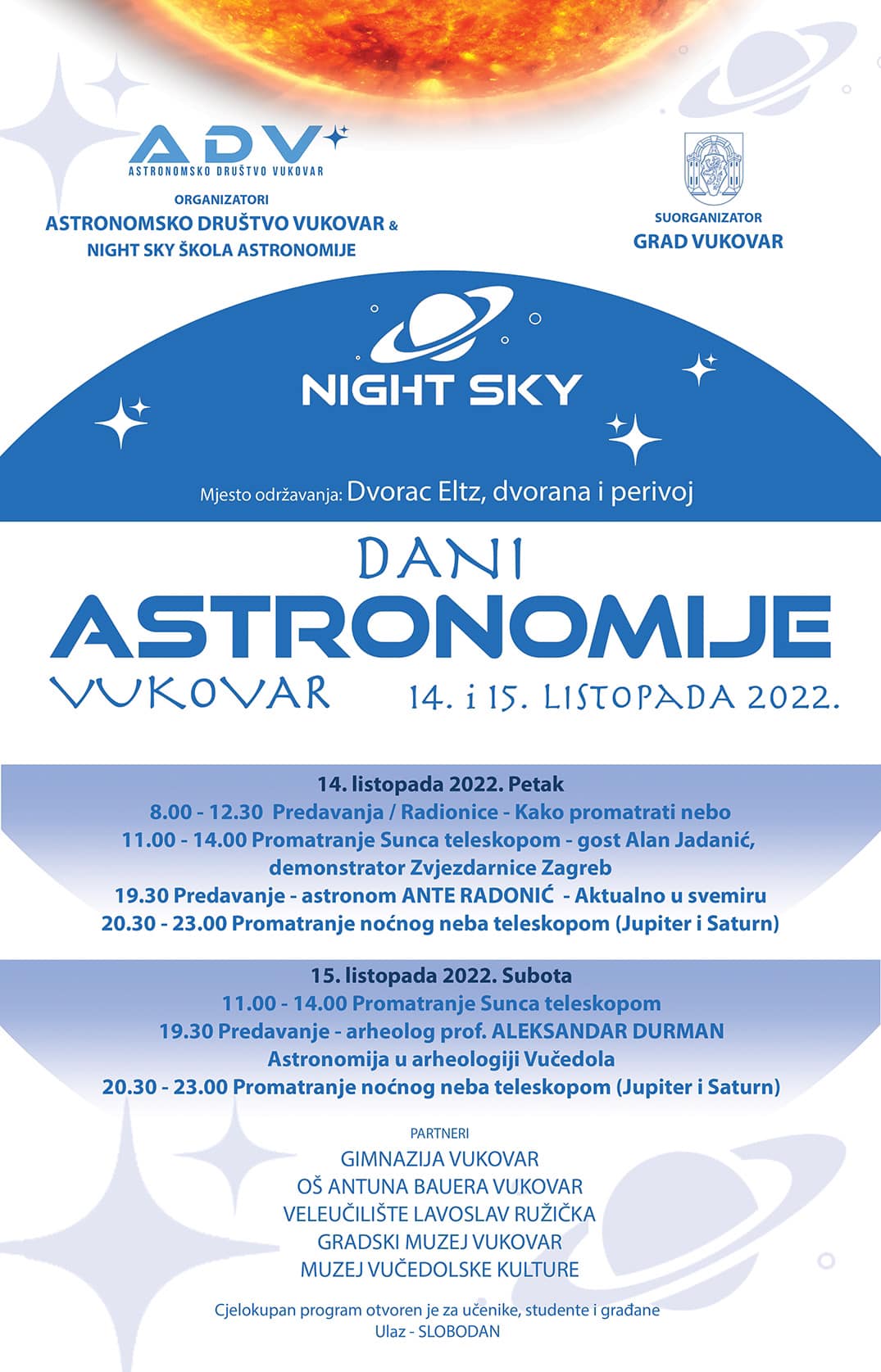
Astronomsko Društvo Vukovar
Friday , October 14 - Sunday, October 16, Osijek: 25th Osijek Autumn Fair
For a quarter of a century, an extremely interesting and rich fair event has been taking place - the Osijek Autumn Fair, with a programme filled with exhibitions, lectures and workshops. The exhibition and sales programme includes goods and services from the fields of agriculture, food, crafts, construction and housing, with a special emphasis on domestic, autochthonous products of the region.
In addition to that, Honey Breakfast will take place on Friday, for the purpose of promoting the production and consumption of honey from Croatian apiaries, in cooperation with the Ministry of Agriculture, HAPIH, the Bee Association, the Cultural Centre and the Hospitality and Tourism School, followed by a lecture on beekeeping organised by the Bee Association - the oldest beekeeping association - with 145 years of existence in this part of Europe. Workshops with the board game "Land of Risk", will explain and familiarise students with the basic concepts of risks and how each individual can participate in reducing risks and preserving nature and the environment, organised by the MUP. The entrance to the Fair is free, and the full programme can be found here.
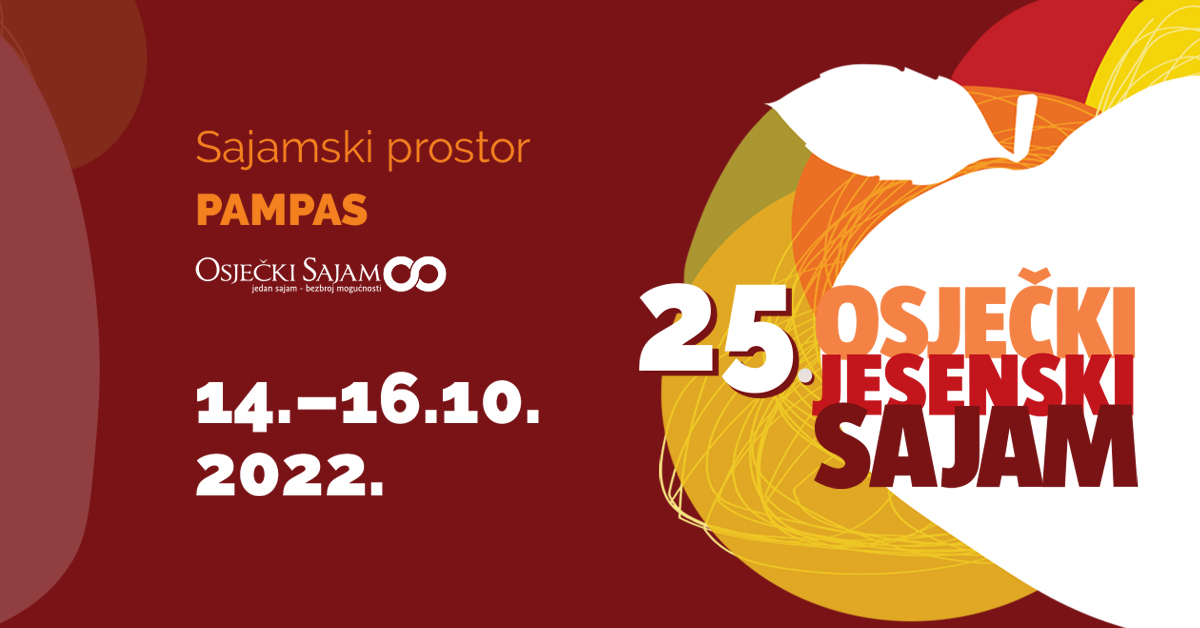
Osječki Sajam
Saturday, October 15, Pakrac: 13th Edition of Slavonski Banovac Fair
A medieval festival, an archery tournament, a knight's fight and a fireshow will take you back in time at the Slavonski Banovac Fair.
Along with the gastronomic offer from the "Kod Veprove Glave" tavern, there will be a traditional bean stew cooking competition - Grahfest, and after the announcement of the winner, good music will follow, courtesy of the band Pravila Igre. This day od medieval and modern entertainment, spiced up with traditional food and good fun starts at 10 am on Saturday, in the Matica Hrvatska street and at the Pakrac market. Full programme to be found here.
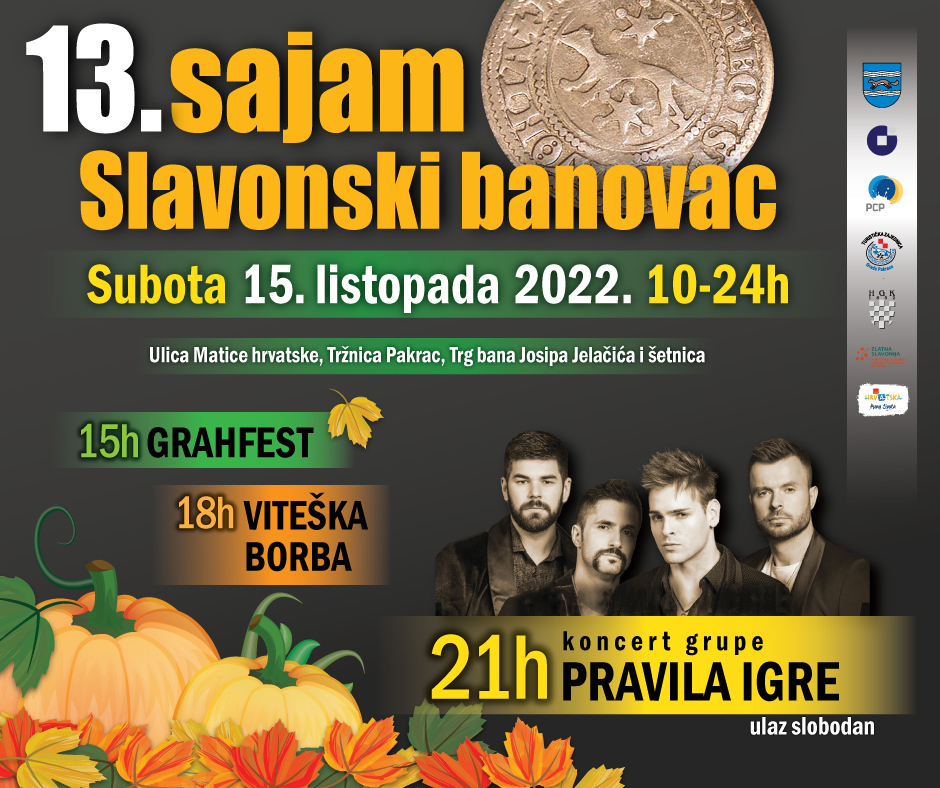
Požega-Slavonia County Tourist Board
Sunday, October 16 - Monday, October 17, Đakovo: 260th anniversary of the birth of Johann Petrus Jakob Haibel
If you are looking for something a little different and would like to spend evenings listening to classical music, give Đakovo a chance and attend the event marking 260 years since the birth of Johann Petrus Jakob Haibel, a famed tenor and composer. Concerts will be held on both evenings in the Monastery Church of the Sisters of Mercy of the Holy Cross in Đakovo, while lectures and a film screening "Jakob Haibel - Mozart's Brother-in-Law in Đakovo" will take place in Đakovo's secondary schools and associations. The event has been organised the Kreativna Kulturna Mreža, an NGO for interdisciplinary projects in culture, arts and science. Find the full programme here.
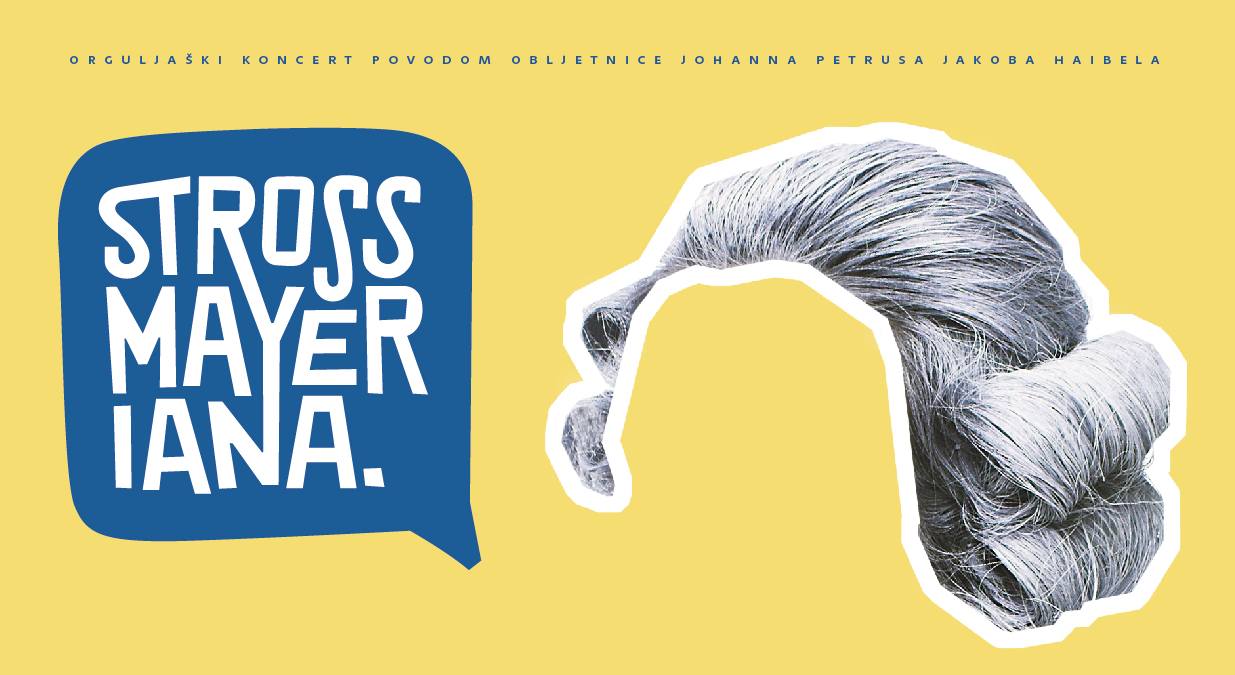
MIT Dizajn studio Osijek
Hopefully you can find something that is to your taste and enjoy a weekend of fun, education, relaxation, or all three.
For more, make sure to check out our dedicated Travel section.
Second Edition of Mammothfest Kicks Off in Mammoth Valley of Mohovo
October 7, 2022 - The story of Mohovo slowly but surely becoming known as the mammoth valley of Croatia continues in a festive spirit. It has been ten years since the first discovery of a mammoth tooth. A group of local creative souls and enthusiasts decided that the area with such a long and rich history deserves recognition. Welcome to the second edition of Mammothfest!
As the portal Turističke Priče writes, the Dolina Mamuta (Mammoth Valley) Association, with the support of the community, is organising the second Mammothfest. The festival program is rich, and the star is a life-size mammoth! Over two days - October 7 and 8 - a series of events has been organised for the residents of Mohovo and all other visitors. There are currently a little more than 150 residents in Mohovo, and the organiser's wish is to popularise their village through this unique event and do something so that young people would stay there.
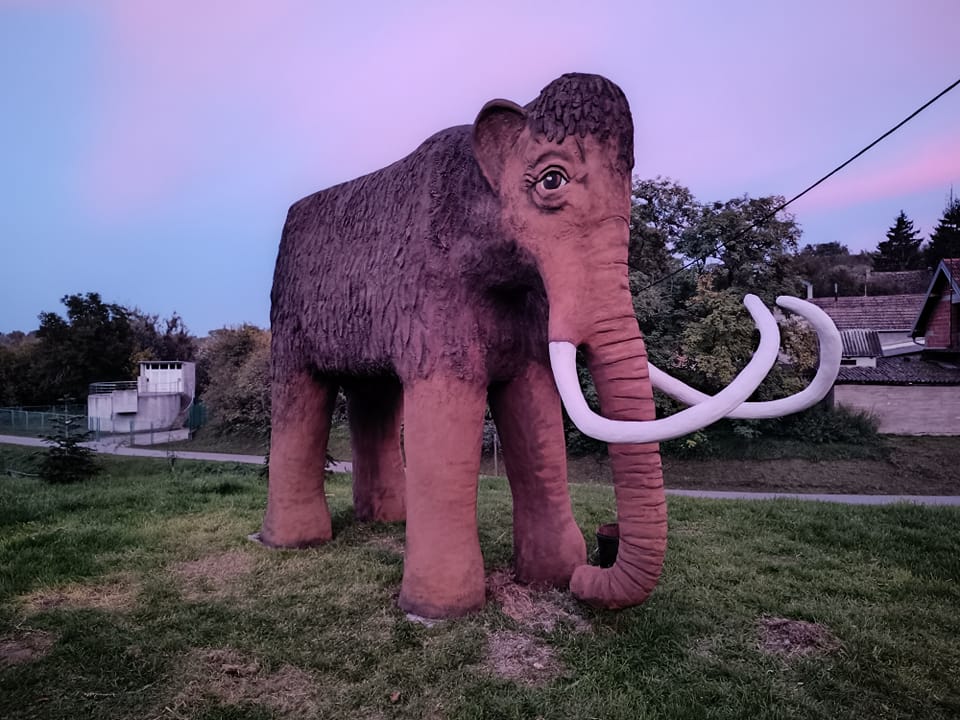
A series of workshops focused on ecology will be organised for children specifically, where they will have the opportunity to see how "čerpić" or mud bricks were made, of which houses were once built. An exhibition is on the agenda for Saturday, where some of the fossils found so far will be exhibited, including mammoth teeth, accompanied by textual descriptions that will explain the finds, as well as the animals that lived in these areas in some ancient age.
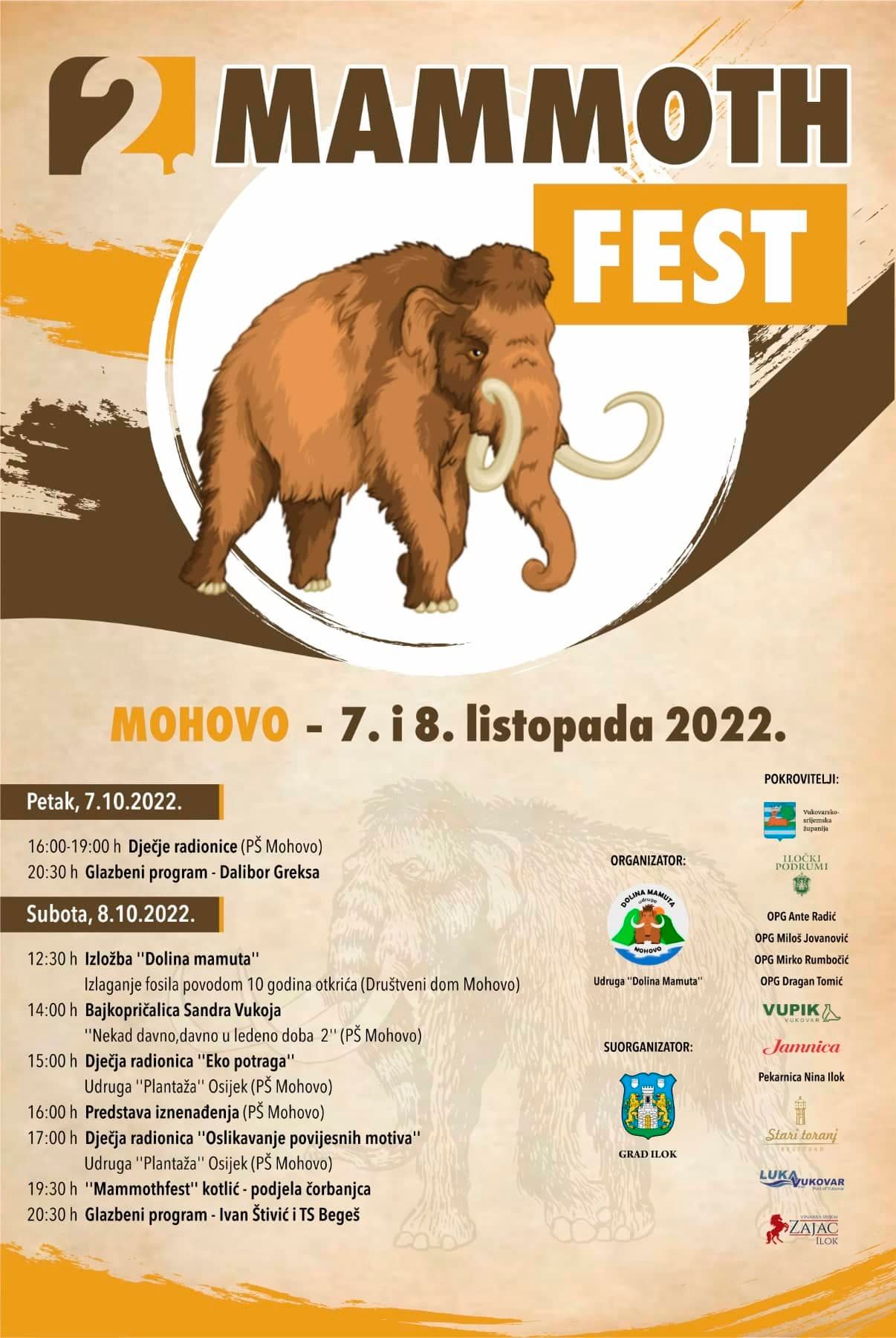
The programme begins on Friday, October 7, at 4 p.m. with various workshops for children, and the first day of the festival will end with a concert by Dalibor Greks.
The programme of the second day of the festival begins at 12:30 p.m. with the opening of the fossil exhibition organised on the occasion of the tenth anniversary of the discovery of the first mammoth tooth in Mohovo. At 2:00 p.m., the program titled "Fairytale Storyteller" begins, in which Sandra Vukoja will tell fairy tales to the youngest. At 3:00 p.m., workshops for children continue, as well as a surprise performance. At 5:00 p.m., the Painting of Historical Motifs workshop begins, and at 7:30 p.m., the Mammothfest kettle, i.e., a dinner of shepherd's stew for all visitors, is announced. The programme ends with a concert by Ivan Štivić and the Begeš Tambura ensemble at 8:30 p.m.
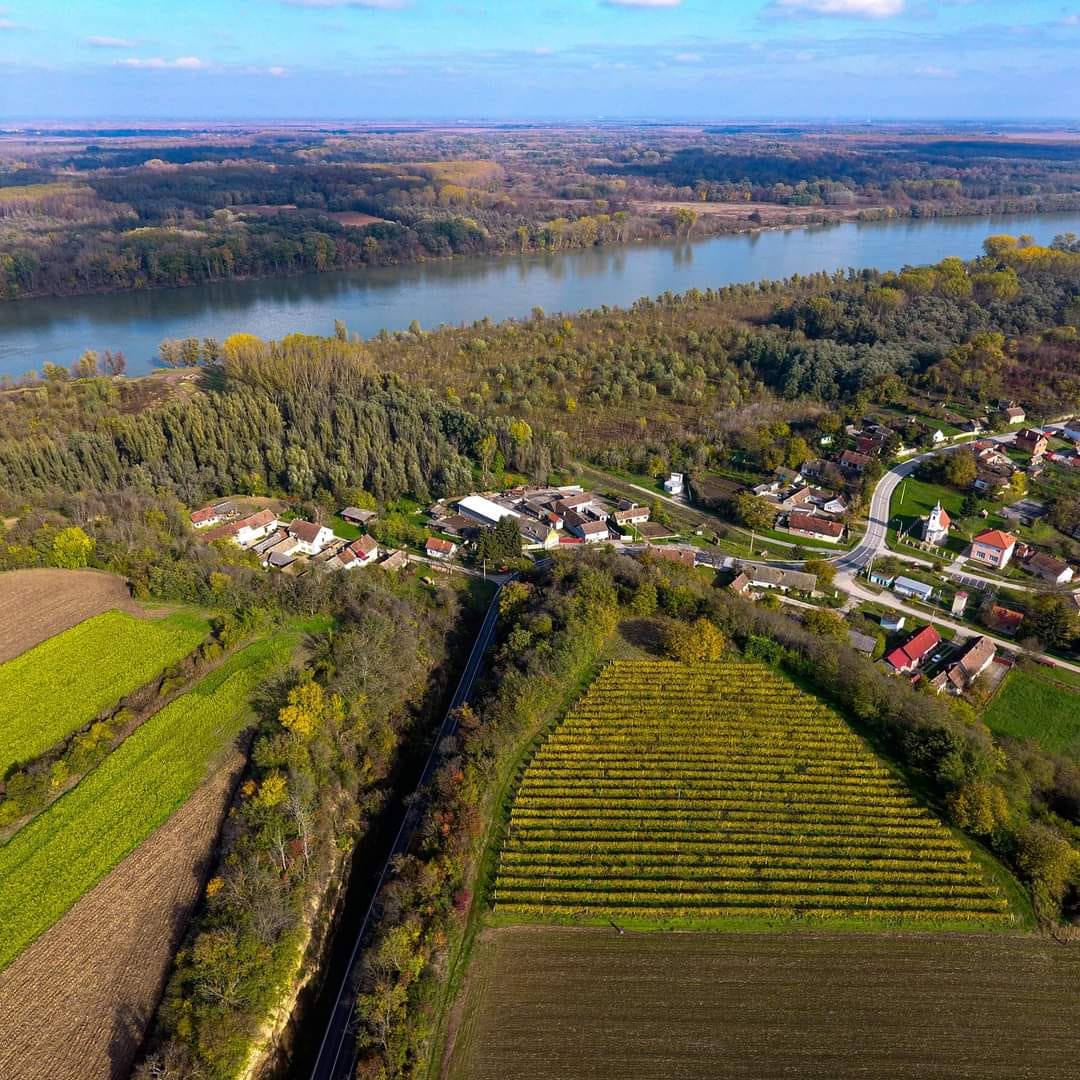
On the eve of the 2nd MAMMOTHFEST, a life-size mammoth has been placed in the centre of the village, which will undoubtedly be a lovely photo point. Come to Mohovo, learn about mammoths, taste some stew, and enjoy good music in beautiful surroundings!
Photos: Dolina Mamuta Association
For more, make sure to check out our dedicated Travel section.
Cro Traditions: Crkveni God, aka Kirbaj, Kirvaj - Patron Saint Celebration
September 29, 2022 - The majority of Croatian people are Catholics. Naturally, their daily lives are influenced by their religion, and so are their traditions. Even though the numbers are changing, as well as the way religion is practiced, some traditions remain and are rarely ever questioned. In Slavonija, one of them is kirbaj, or kirvaj, officially known as Crkveni God. The colloquial expressions came from German "Kirchweih," the dedication of a church from 19th-century German tradition; the day is a celebration of the patron saint of the local church. Villages usually only have one church, but there could be multiple kirbajs throughout the year in cities. It is in the smaller communities, though, where it all shines and where it makes the list of the top 5 days of the year.
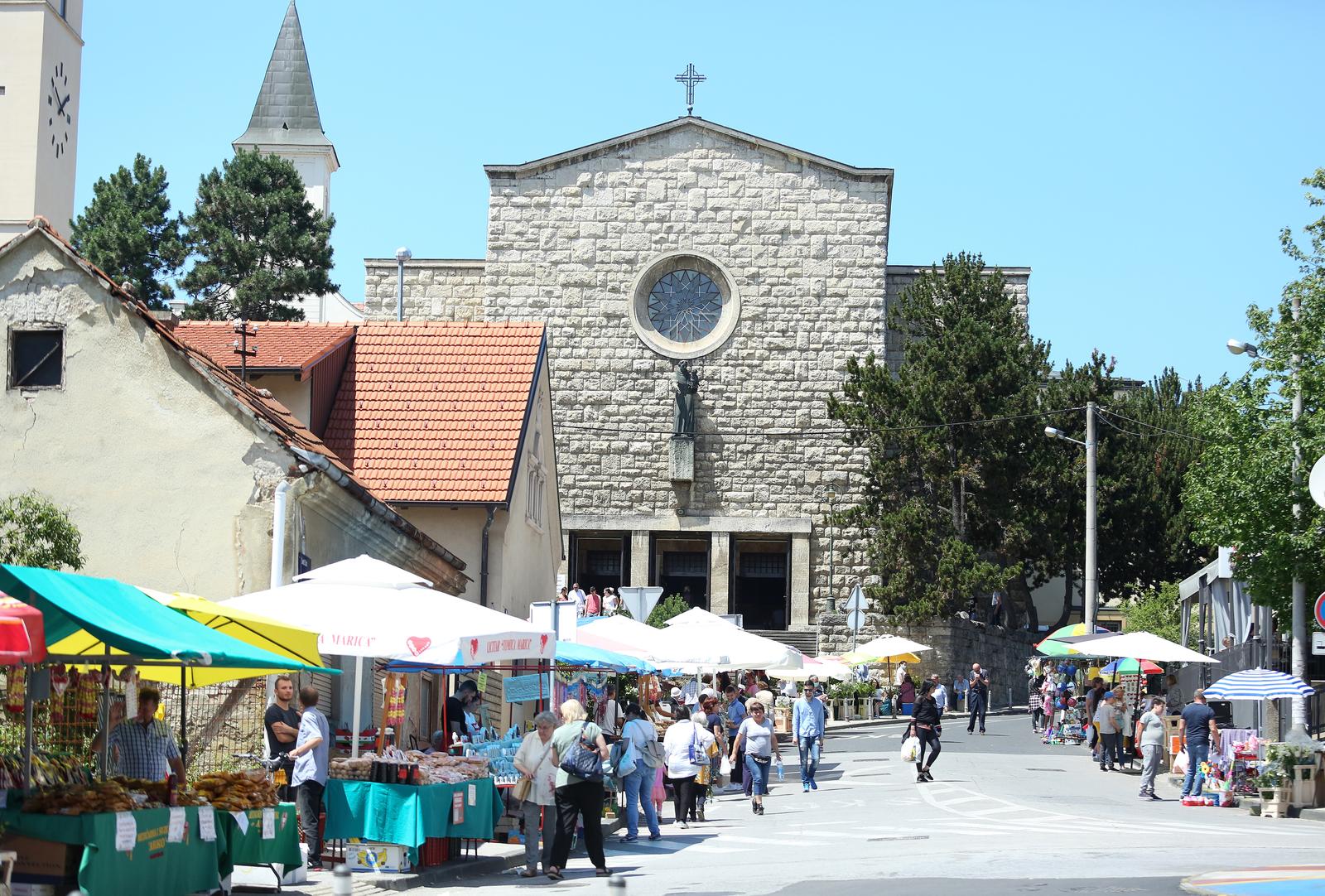
Emica Elvedji / PIXSELL
September 29 is the day of St Michael, the patron saint of grocers, paramedics, mariners, paratroopers, police officers, and military personnel. He is celebrated in many places in eastern Croatia. We went to Donji Miholjac, where even rain did not ruin the festive atmosphere. For the religious part of the holiday, everyone goes to church and expresses gratitude to their patron saint, and there is usually a procession through the village. This is an opportunity to spruce up the place and make it look presentable, pretty, and inviting to all visitors. This is especially amusing to children because the streets are never as shiny, colourful, and fun like on kirbaj. The little ones will save money to buy toys, candy, balloons, rides, or even pets at one of the little stalls covering the whole stretch of the main streets.
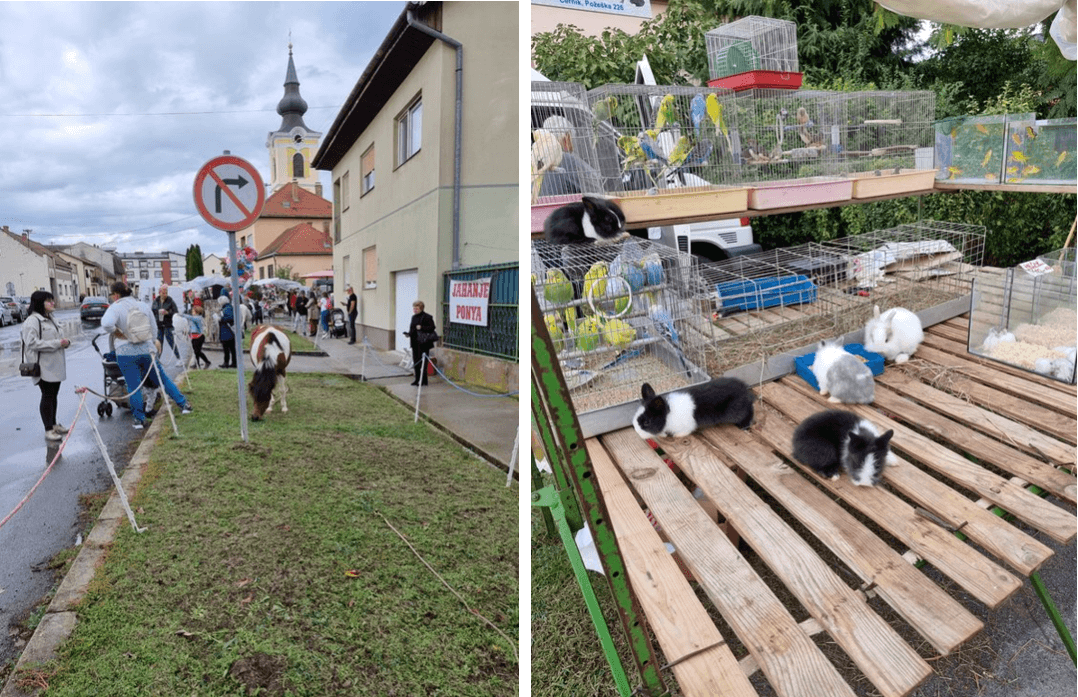
At home, the preparations for the big day sometimes begin months in advance. Just like the village shows off for the procession and the visitors, the hosts want to do the same. Socially, kirbaj is an excellent opportunity to bring your family and friends together. Houses need to be clean and tidy, and the atmosphere warm and welcoming. Traditionally, alongside making the house spotless, even the walls would be freshly painted for the day. After all that is done, the hosts will spend days preparing the food. Chicken broth is usually served first, followed by sarma or stuffed peppers (depending on the season), before the chicken mentioned above with cooked vegetables and tomato sauce. Then it’s time for the mains. Roasted pig or lamb is usually the star of the table, accompanied by homemade mlinci (a type of pasta that is cooked and flavoured with some of that delicious fat from the roast) and a variety of salads that are really other side dishes. Usually, that is the French (aka Russian) salad, potato salad, and coleslaw.
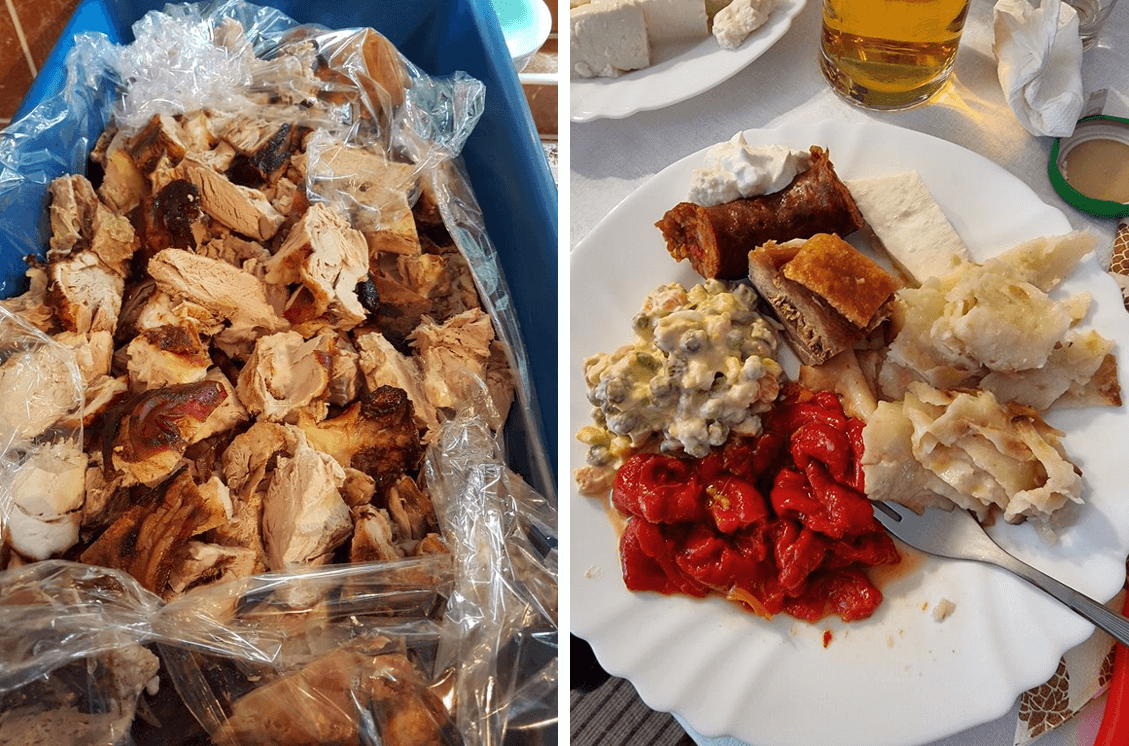
Of course, there is always dessert, a tray full of cakes and biscuits of all kinds. And the last course is coffee. Jokingly known as “potjeruša” – Croatian for “please go home now,” coffee is actually served as the much-needed help for your digestion. Whether you want to go home depends on the age and responsibility group you belong to.
If you stay long enough, you will probably have some more food and slowly transition onto a liquid diet. A little bit buzzed, you might find yourself on your way to the village pub or a venue expressly set up for the kirbaj after-party. What happens there needs to be enough for the village to have something to talk about until next year’s kirbaj.
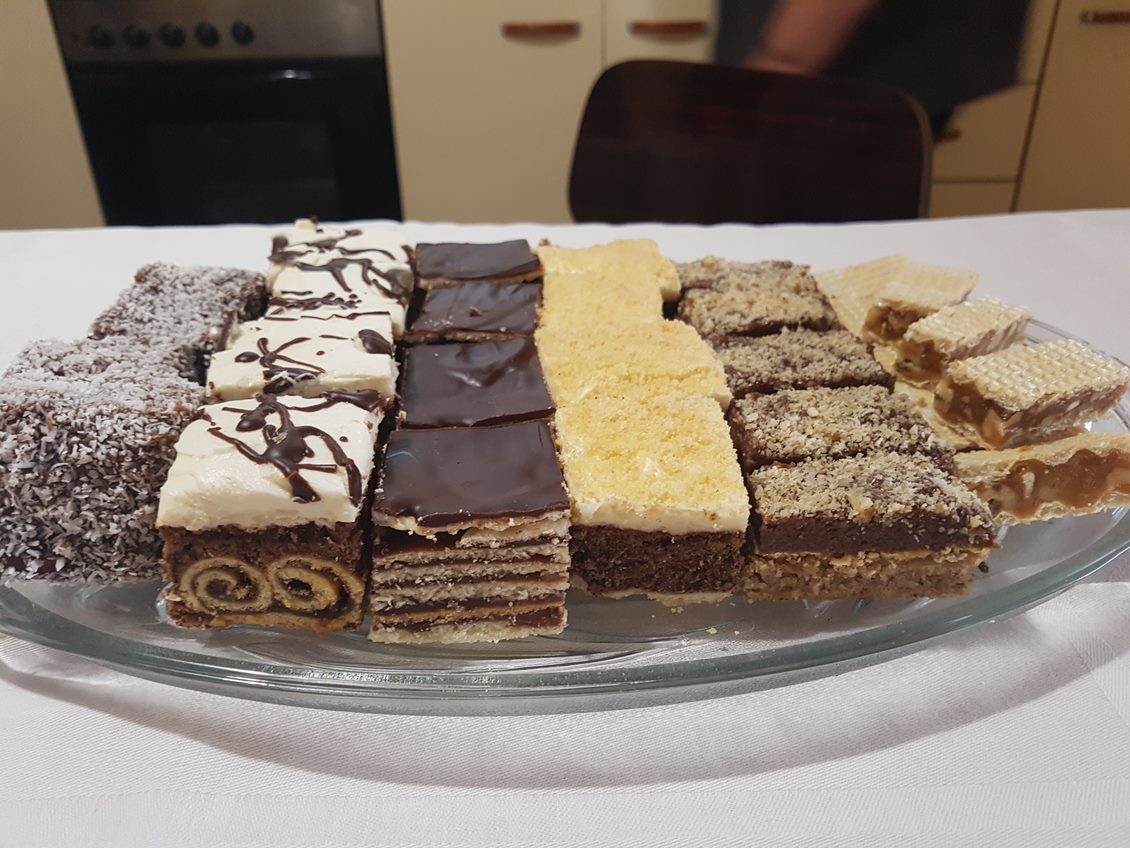
Very important to note: you might not receive any invitations for kirbaj. Traditionally, you are expected to know when it is and simply show up. In turn, family and friends will also show up at your door on the day of your local kirbaj.
For more, make sure to check out our dedicated Lifestyle section.
Discover the Croatian Danube: An Idyllic Weekend in Dalj
September 30, 2022 - From the canals of Aljmaš; and the slopes of Erdut, after having enjoyed steaming hot fish stew from a hanging pot and wine from the largest barrel in the world, continue your journey east, and you will shortly arrive in Dalj. Another hidden gem of Slavonia and Croatia. A place where the Danube is just the right temperature in the summer, where the fruits taste sweet, and where the stars aligned to make it the birthplace of one of the greats.
The first signs of life in Dalj date back to the Bronze Age, around 1350 BC. One of its first names, from the Roman times, was Teutoburgium, and its significance was that it was positioned on one of the four main routes towards Dalmatia. Just like the rest of eastern Croatia, Dalj underwent changes in power and demography, resulting in a rich heritage mix of Catholic, Orthodox Christian, and Ottoman influences. The Christian religions remained and are both still an essential part of Dalj’s culture. The silhouette of the village is adorned with Catholic and Orthodox churches, and the church of St. Demetrius is the largest cathedral of the Serbian Orthodox Church in Croatia. Right next to it, an inviting palace with a garden full of flowers – the summer residence of the church’s patriarchs found its home. Naturally, its location is prime, with only a green park between it and the Danube.
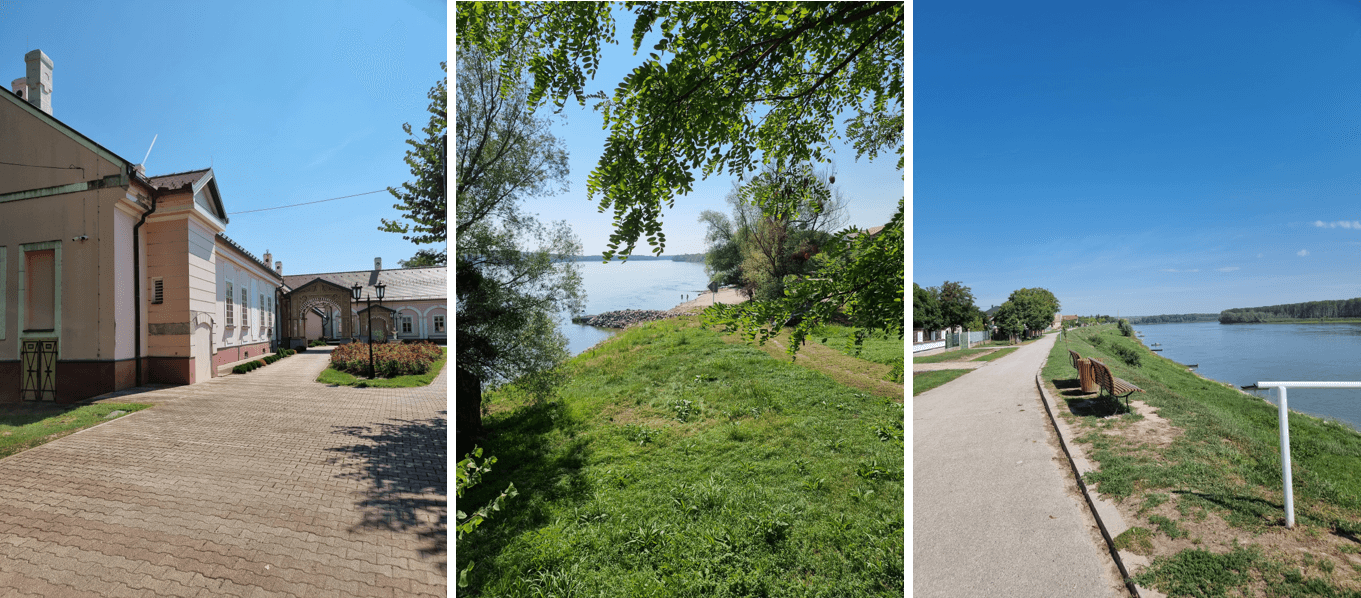
Author
The Danube, of course, is what life revolves around. The geography of the village has remained such that people from every part of the village can reach the riverbank quickly and straightforwardly. They go there to walk, relax, swim, fish, or enjoy nature. In the summer, the Dalj beach is the absolute centre of all activity. Gathering from all parts of the village, families, and friends either walk, swim, or let the Danube take their boats there. Once they’ve reached the sand and the shade of the banks, the party can start. Whether beach volleyball, music, drinks, or barbecue, something happens daily to keep everybody’s minds off the summer heat.
Just like Aljmaš and Erdut, Dalj is an excellent stop on the Danube not only for refreshment and activities but for wine and food. The local gastronomy shines bright in Stari Mlin, a restaurant serving the best of Slavonia daily, with live music on weekends, occasional events, and special celebrations. It is a trendy venue for team buildings as well. There is plenty of room both indoors and on their summer terrace.
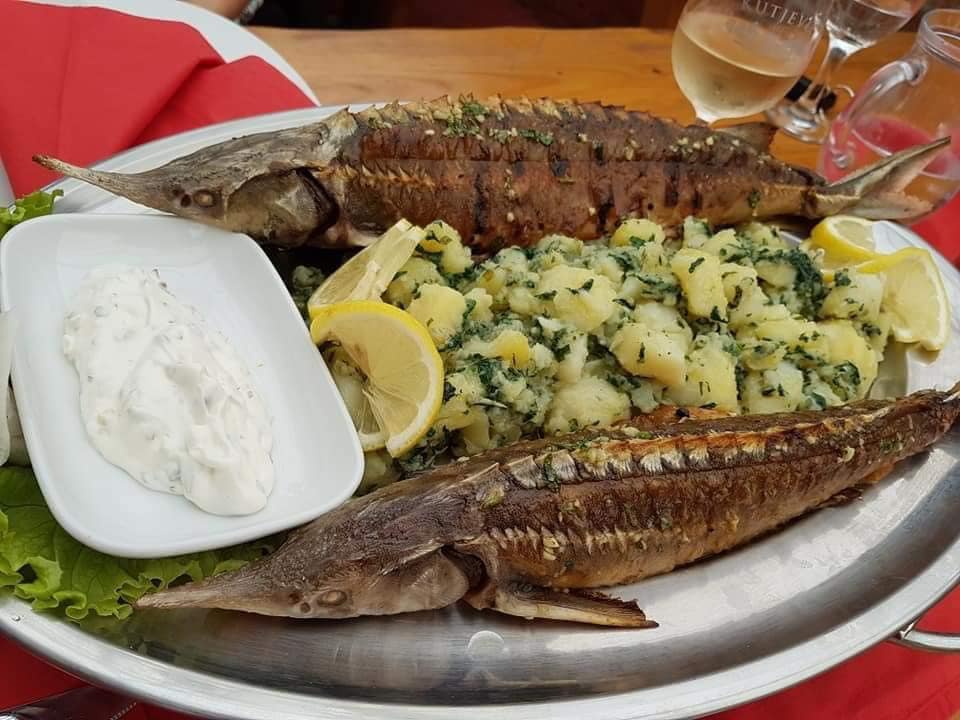
Restoran Stari Mlin
The menu celebrates the Danube, with carp, catfish, and perch taking centre stage and plenty of meat dishes in supporting roles. We recommend calling in advance to try out their famous traditional catfish stew or fire-roasted carp. Even if you’re not feeling hungry, sit down for dessert or coffee and enjoy the view and the Danube breeze.
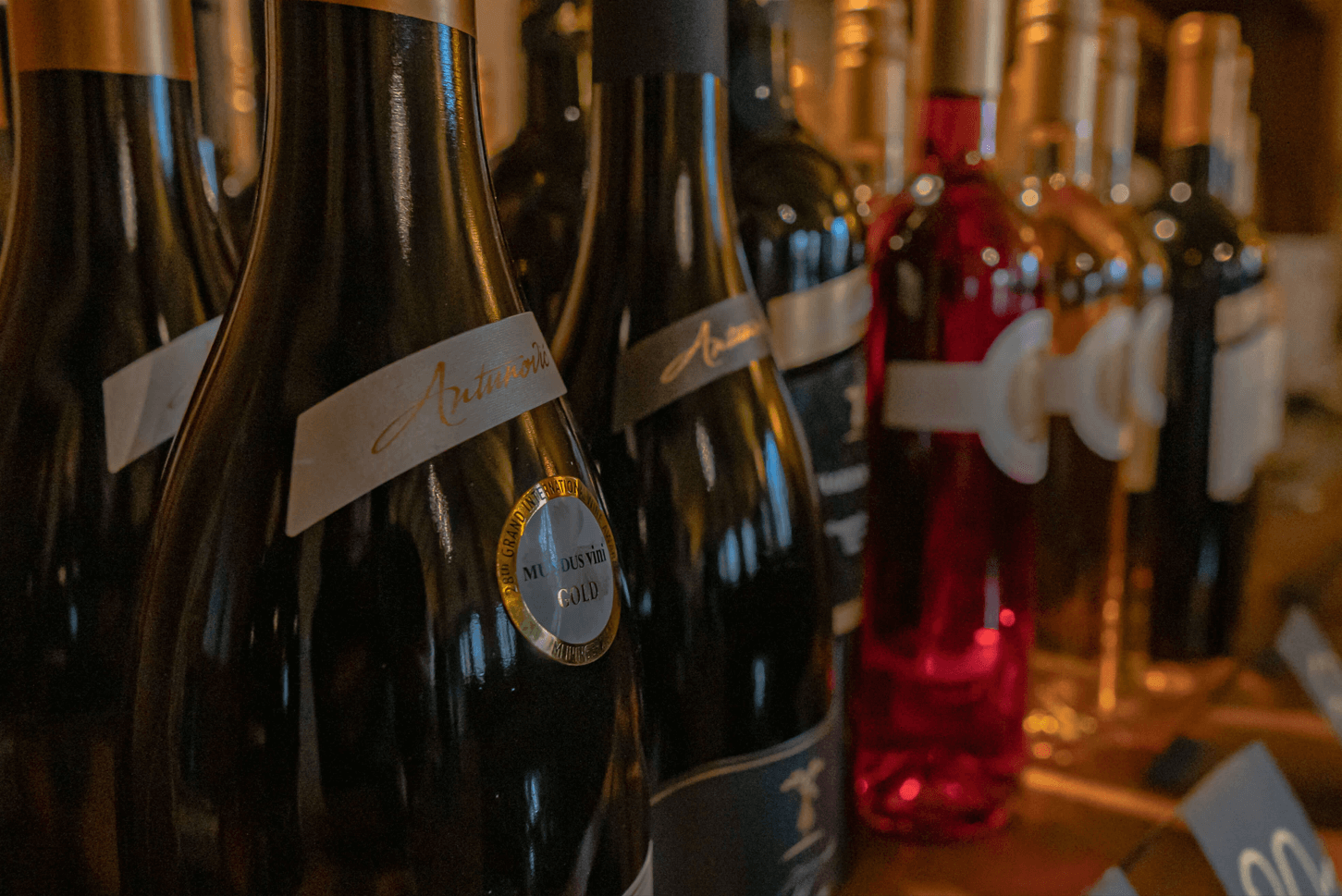
Steve Tsentserensky
After a delicious filling meal, it would be a mistake not to let your heart take you straight to wine. A special surprise awaits in Dalj. Head over to the Antunović winery, the first female-owned and established Croatian winery, and find out why it became one of the most awarded wineries in Croatia.
If you’re looking for a specific reason to visit Dalj, where you can experience the lovely autumn atmosphere while learning about the local traditions, try the Fair of Old Crafts and Customs and Gužvara Fest. Use the chance to try out traditional tools and witness true craftsmanship or taste some of the local delicacies. The emphasis lies on Gužvara – a traditional yeast dough dessert filled with ground walnuts or poppy seeds. It is a must-serve at Slavonian feasts and gatherings. Saturday, the 8th of October, is the day.
Tradition is an integral part of life in Croatian villages. Following suit, the big days in Dalj include kirbaj (also known as kirvaj), Crkveni God for the Catholic population, and Krsna Slava for Orthodox families. Both events celebrate the village's and family patron saints, respectively.
Finally, let us not forget to mention Dalj's greatest - Milutin Milanković. This mind of the future, an influential mathematician, physicist, and astronomer, was born in Dalj, went on to travel Europe for his studies and work, but came to some of his most important conclusions right in his backyard, inspired by the Danube and a big pine tree, which still stands there 143 years later. Stay tuned to find out more about, possibly, Croatia's most underrated museum.
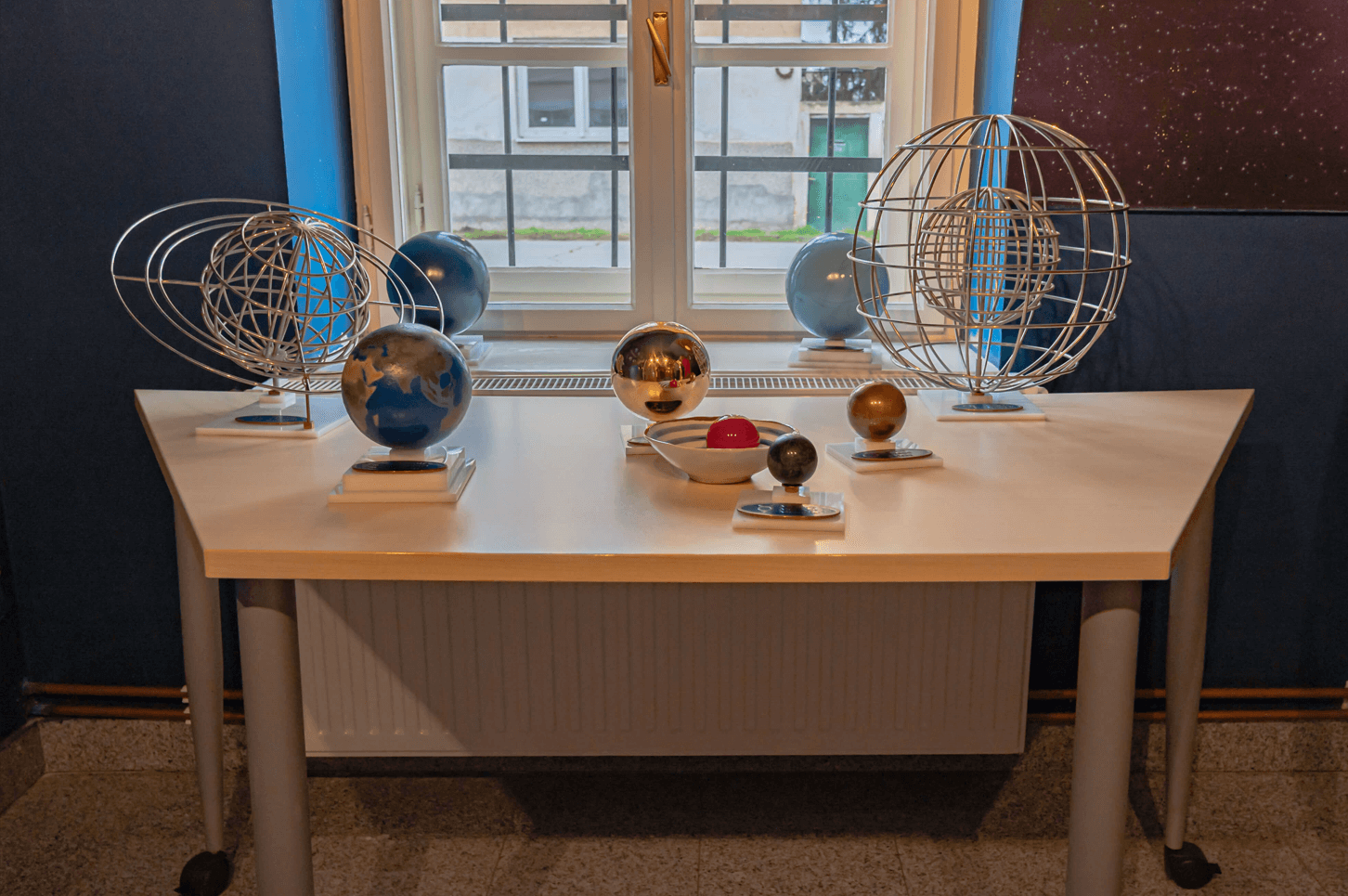
Steve Tsentserensky
Special thanks to Jovana, the Erdut Municipality Tourist Board directorErdut Municipality Tourist Board, and the perfect host for our day in Dalj.
How good is your knowledge of eastern Croatia? Take the CROMADS test above - how many places do you recognise?
For more, make sure to check out our dedicated Travel section.
Season 2022, Mission Year-Round Tourism: Vukovar Well on the Way
September 8, 2022 – While the Adriatic coast is still almost exclusively a summer destination, other parts of Croatia strive to fill the gap. Among them, Vukovar is indeed full of life, 365 days a year. The local tourist board shared some of their insight for season 2022 so far. Year-round tourism in Vukovar is the mission, and it seems that it’s been going well.
CNTB has been working to stregthen continental tourism, and Vukovar is a step ahead. As they put it in the local tourist board, this city is not a seasonal destination anyway, though its highlights are a higher number of tourist arrivals in spring and autumn. Statistically speaking, the number of overnight stays is an indicator of the success of a season, but in Vukovar, even one-day visitors should make the count, it's just that it is difficult to count them accurately.
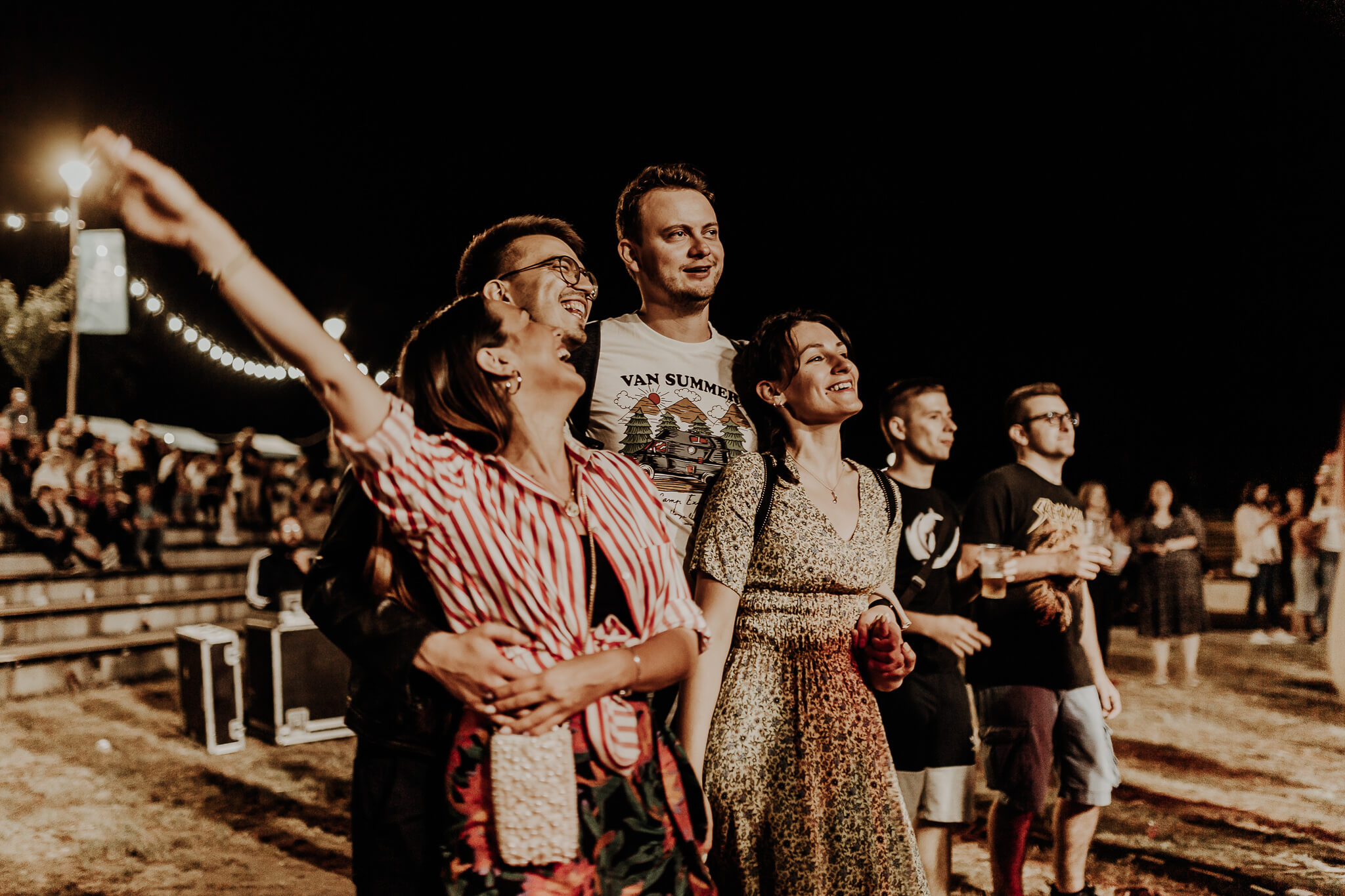
Significant sports events as well as manifestations and festivals generate an increased number of arrivals and overnight stays (Vukovar Film Festival, Svi zaJedno Hrvatsko NAJ).
In the period from 1st January until 31st August, 19.605 arrivals and 33.005 overnight stays were recorded in Vukovar. Out of the total number of overnight stays, 24.641 were domestic guests and 8.364 foreigners. The number of overnight stays compared to the same period last year is 113.93% higher in total. The number of overnight stays of foreign tourists increased by 63.26%, and of domestic tourists by 139.12%. Such a large overnight index of domestic tourists is the result of the return of students' visits for a two-day tour of Vukovar, while in 2021 they would only come for one-day visits, without overnight stays.
As for arrivals, the total amounts to 19.605, of which 2.744 were foreign guests, and 16.861 were domestic. Last year, there were 13.756 fewer arrivals, because in 2021 there were no student excursions that included overnight stays, so they are not recorded here. Looking at arrivals and overnight stays in 2022 without students, the total number of arrivals was 9.188, of which 2.725 were foreign guests and 6.463 domestic. This means that this year 10.398 students visited Vukovar. Comparing the indexes of arrivals and overnight stays, it is apparent that in the total amount, arrivals exceeded last years' by 57.9%, and overnight stays by 36.60%. The number of foreign tourist arrivals increased by 97.89% and domestic by 44.52%. In terms of overnight stays, the increase of foreign guests has been 61.59 %, and domestic guests 24.18 %.
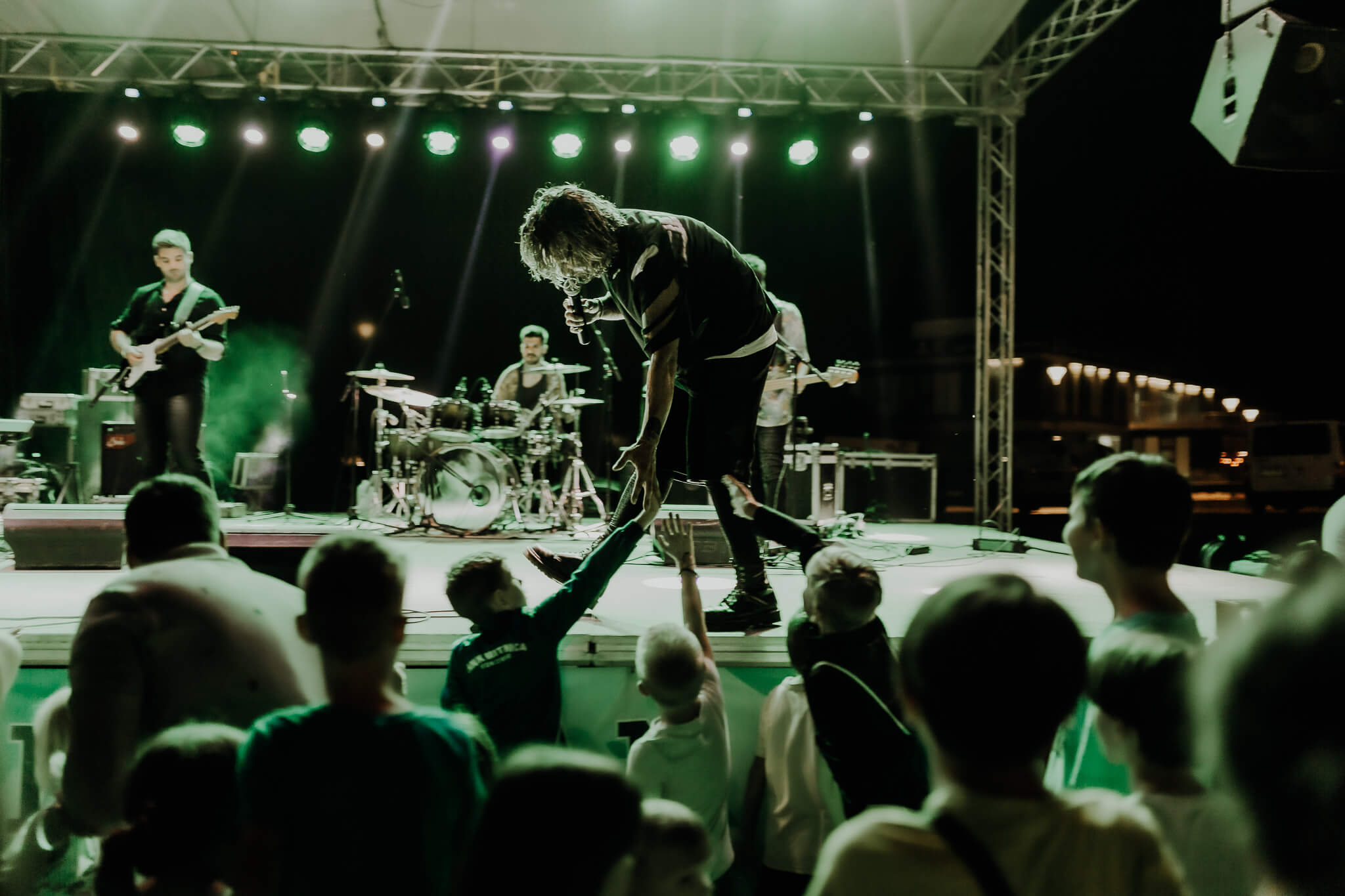
The people of Vukovar have always lived on and by their river, and they still spend a lot of time on its waves and banks. It is increasingly attractive to guests from other parts of Croatia, and numerous guests from all over the world on river cruises sail down the Danube.
In 2021, 125 river cruise ships docked in Vukovar with 11.349 passengers. For 2022, 339 cruisers were announced, at the level of 2019, when 351 cruisers docked.
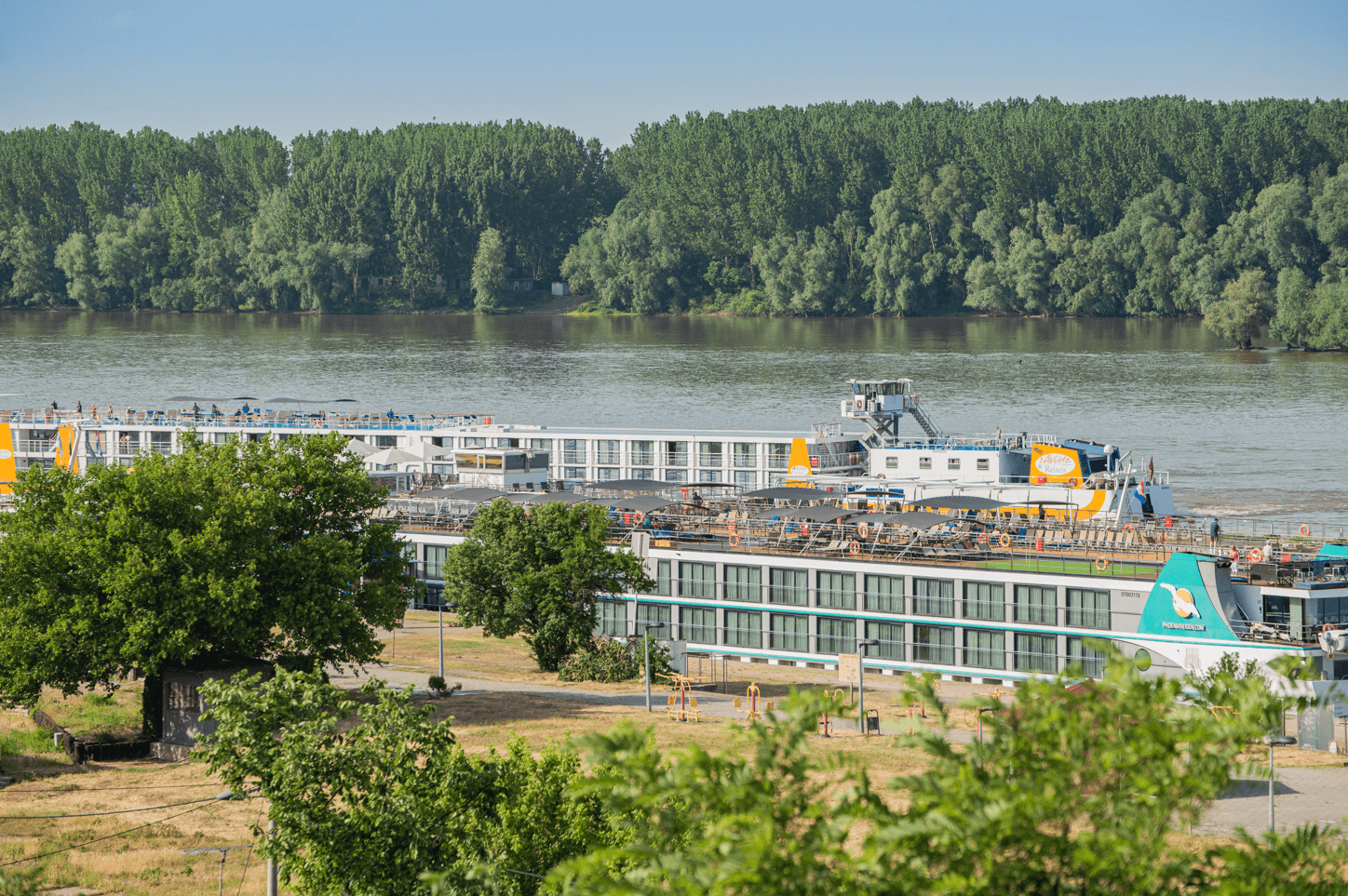
The Film Festival of the Danube countries - the Vukovar Film Festival, which is in many respects unique - has returned to the banks of the Danube in its full glory. It is the only film festival that literally takes place on the Danube and thus offers a unique experience. It was designed to promote and expand the creative rise of filmmakers from the Danube countries. The 16th edition of the Festival was held from June 29 to July 3, and it brought over 50 of the latest acclaimed and award-winning films from prestigious international film festivals.
Vukovar was an important destination for film festivals this summer. Another film festival premiered on July 29 and 30 - Klein Film Festival. Klein is a film and music festival, which is conceived as an international festival of short feature, documentary, and animated films up to 20 minutes long. The festival is a tribute to Hugo Klein, a theater professor, theoretician, and psychiatrist born in Vukovar.
Summer in Vukovar is unthinkable without swimming in the Danube on Vukovar Ada, a sandy island opposite the city that is ranked among the ten most beautiful and interesting beaches in Croatia on rivers and lakes. This year too, free transportation was provided for all those looking for refreshment and an escape from the heat and scorching city asphalt. The Vukovar Ada is a great place for camping and beach volleyball, and good fun in a pleasant company is guaranteed.
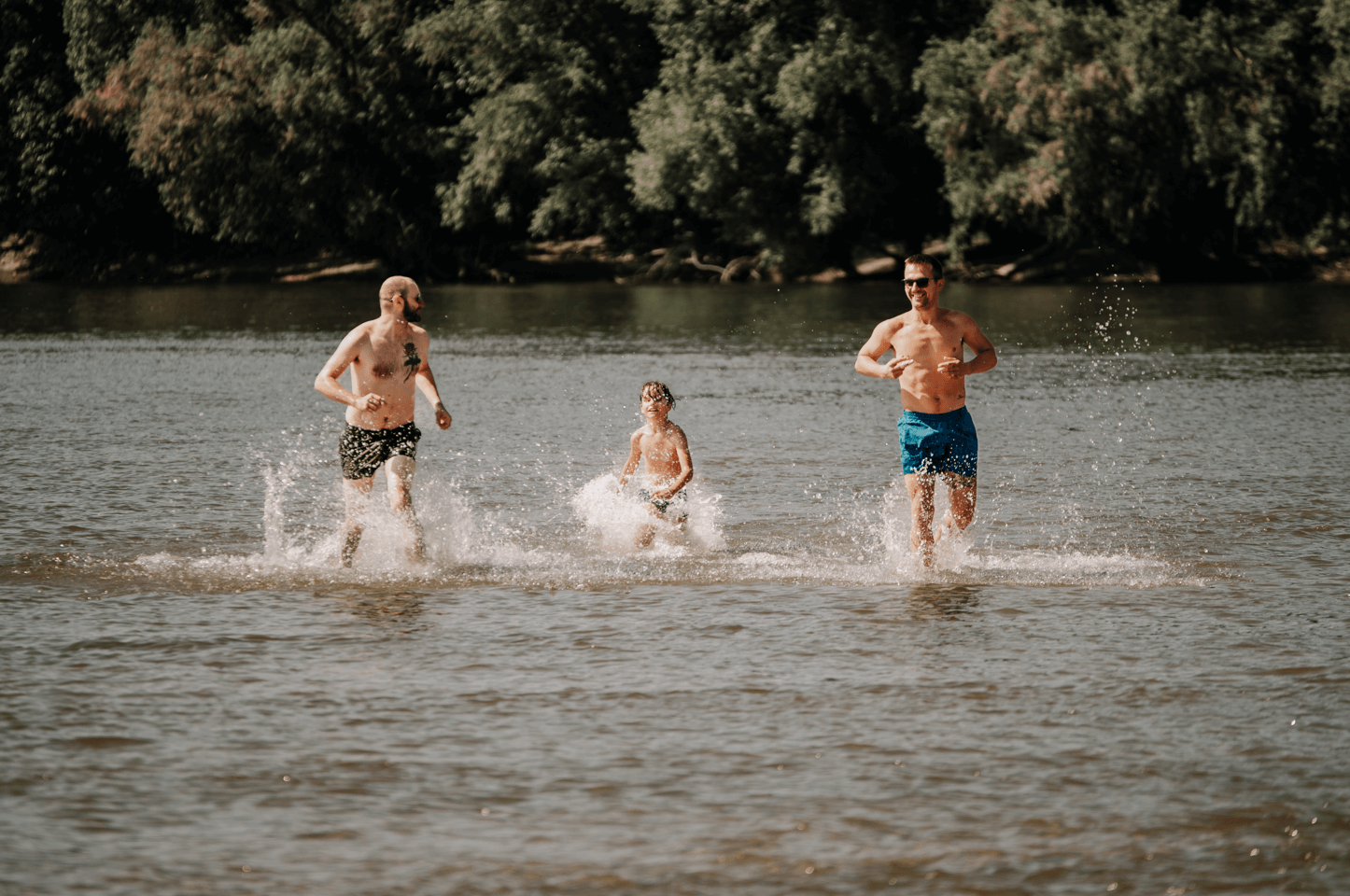
An interesting program called Danube Garden Summer Nights has been designed for this year, with good music, delicious food, and refreshing drinks under the Danube stars. A total of four concerts during July and August were held on the summer stage by the Danube, which in its magical ambiance was a hit place this year for pleasant socialising, fun, and enjoying the beauty of Vukovar nights. There was also a cinema under the stars, a motorcycle party, and numerous other cultural and similar events. It is no small thing to live in a city through which the second largest European river flows! It should be emphasised, celebrated, and simply lived with the Danube, as the people of Vukovar show by example.
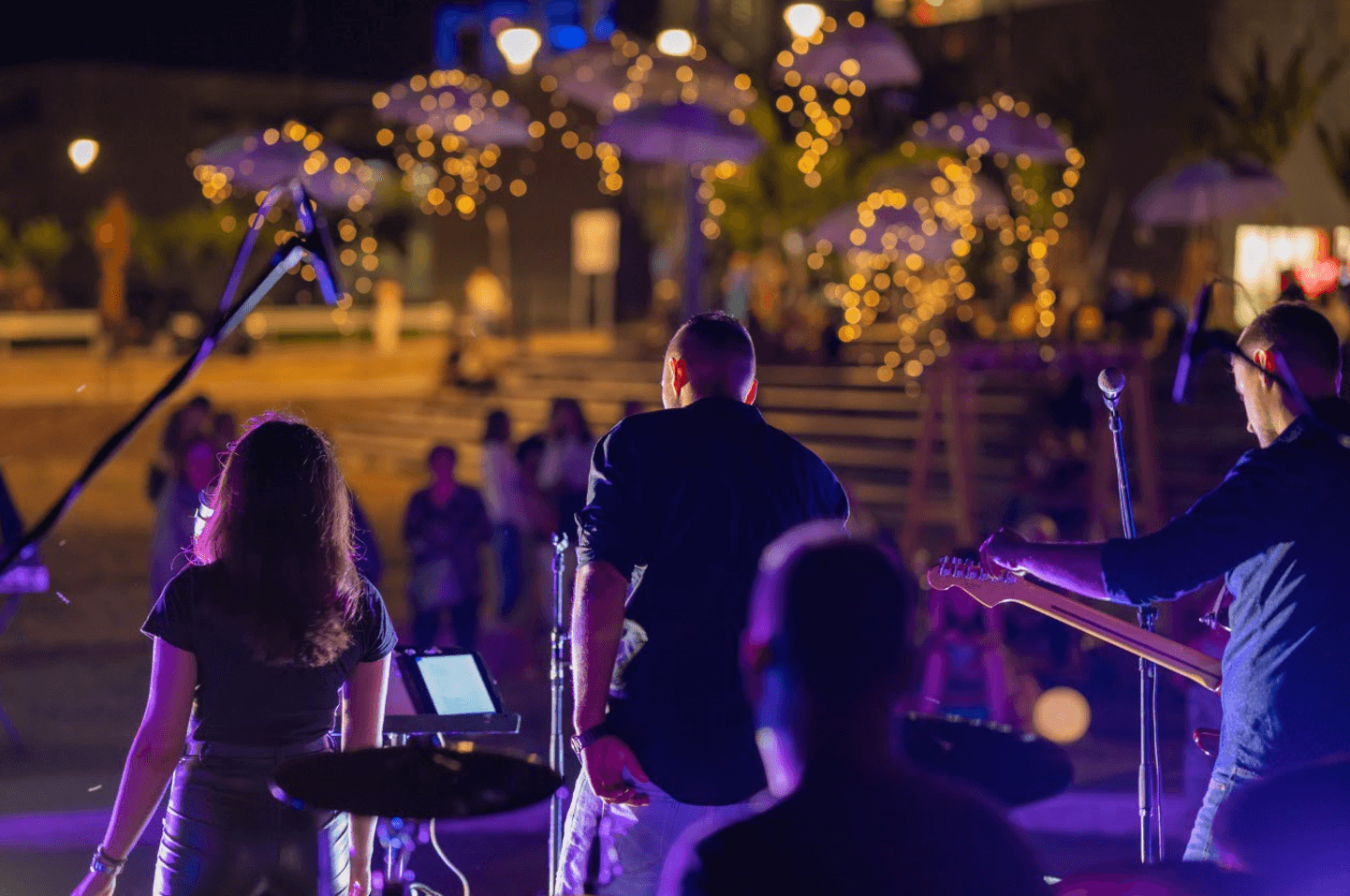
As autumn approaches, preparations begin for the 15th Vukovar ethno fair, which will be held from September 23 to 25 at Republic Square. Craftsmen from all over Croatia will join the fair again this year at the 6th Flavours of Croatia fair, organised by the Vukovar Artisans Association, where they will prepare and present their autochthonous dishes. Brewers and representatives of the German and Austrian minority communities as part of the 5th Vukovar OktoBierFest will also showcase their products. There is no better place to promote beer and brewers than Vukovar and its fair - after all, the first beer was produced in Vučedol.
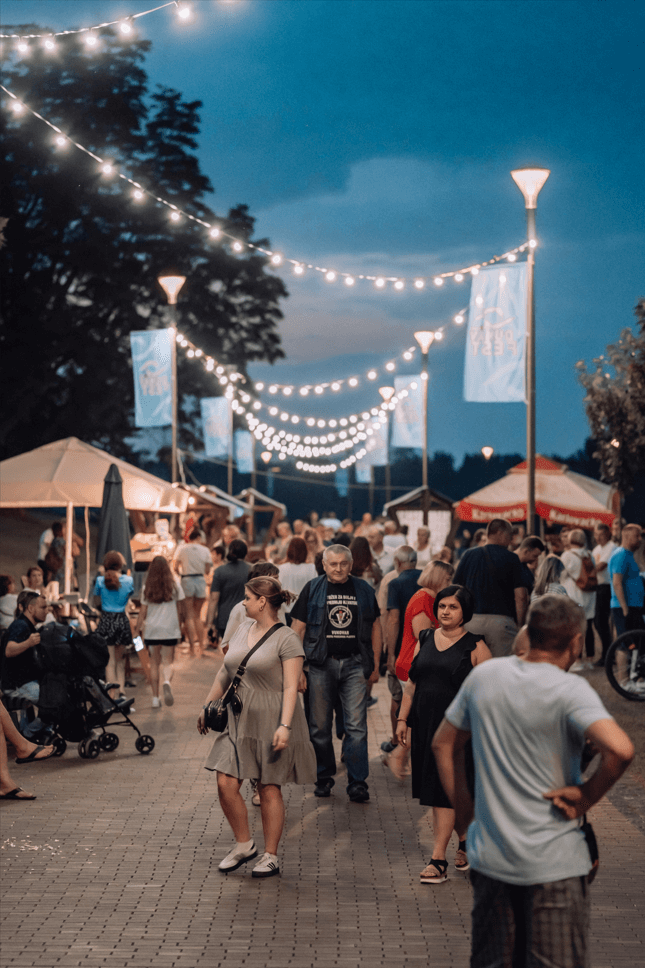
During the fair, the Association of Tourist Guides of the City of Vukovar is organising a free guided tour of the city for the local population and visitors for the fifth year in a row, on the occasion of World Tourism Day, which is September 27. This year, costumed guides will take us back to the old times in the city.
All photos by Vukovar Tourist Board.
For more, make sure to check out our dedicated Travel section.
Vinkovci Business Incubator Exceeds All Expectations
September 2, 2022 - Since its opening two and a half years ago, in February 2020, the Vinkovci Business Incubator has met, and, it is safe to say, exceeded all expectations and predictions - all capacities have been completely full for a long time, and only in the past year 22 companies with 63 employees were located in that area, while more than 160 entrepreneurs participated in organised workshops and round tables with the aim of increasing their entrepreneurial knowledge and skills.
As Glas Slavonije writes, wanting to be informed about their business plans and to get first-hand information and hear suggestions on how to further improve their relationship with the Business Incubator, Mayor Ivan Bosančić visited the tenants and on that occasion pointed out that the Business Incubator was one of the first major projects of his team, to which he especially proud.
"I am proud of my team that we managed to implement such a demanding project, worth HRK 21 million, with a minimal correction of only five percent, which means that in the end we obtained grants in the amount of HRK 20 million. The most important of all is the fact that today the Business Incubator is completely filled with tenants from different business spheres, from the IT sector, design, production to hospitality. Most of them have increasing needs and are constantly looking for additional workers", said Mayor Bosančić.
All of them, he said, have the support of the City in their efforts to improve and advance their businesses, especially when it comes to new projects and new employment.
As a reminder, the Vinkovci Business Incubator has an area of 1,861 square meters, consisting of 5 production and 13 office business spaces, an administrative part of the building, a conference hall of 100 square meters and a multi-purpose hall with the possibility of partitions, also with a total area of 100 square meters, as well as a co-working space and a canteen. In addition to space, the Business Incubator also provides tenants with business equipment and provides support through business consulting, education, connections, presentations, promotion and visibility in the initial and most critical stages of the development of their companies. All these tools are key to increasing the number of companies that survive on the market and encouraging their growth and development, as well as creating new jobs.
For more, make sure to check out our dedicated Business section.


